#their lineage should be called the amnesia lineage
Explore tagged Tumblr posts
Text
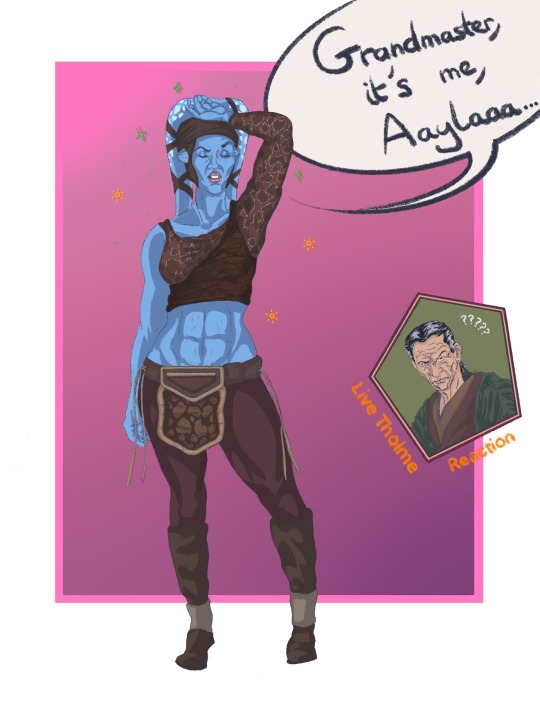
#aayla secura#master tholme#their lineage should be called the amnesia lineage#not a prompt#but a jedi#jedi knight#draweverythingjune2025#jedi june#if I had nickel for every time quinlan or aayla got amnesia#i would have two nickels#which isnt a lot but its weird that it happened twice#star wars#sw fanart#there is such a thing as over-use of a plot device#lmao
38 notes
·
View notes
Text
JONAH’S EVER AFTER ON IKEREV TW
I CAN’T I--

HIS RELEASE CAMPAIGN CAME OUT YESTERDAY BUT I ONLY SAW IT A FEW MINUTES AGO BC I WAS ON VACATION I CAN’T BELIEVE I MISSED THIS WHAT KIND OF JONAH STAN AM I
THIS MEANS THAT JONAH’S ROUTE CAMPAIGN WILL BEGIN SOMEWHERE AROUND LATE OCTOBER OR EARLY NOVEMBER IN THE ENGLISH VERSION SO MARK YOUR CALENDARS
I’m putting the rest of this under a cut for length bc I HAVE SO MUCH TO SAY
[Translation:
“On the 1 in a hundred million chance that I cannot marry you into the Clemence family, then I’m prepared to abandon my family.”
Whether it’s to build a family together, or to receive happiness together. For the one you love, the path you should take to the future is...
“You’re really too much. Don’t say something like...I’m sorry.”
The eyes that are brighter than the fireworks in the sky overflow with tears, and turn into strength to overcome the mirror blocking our path.
“When it’s only the two of us, I’m just Jonah...and I want to spoil you as much as I like.”]
ASDFKJWEIH;KAFJJE;LSAKFSD
I CAN ALREADY SENSE THE ABSOLUTE ANGST IN THIS ROUTE
IN HIS ORIGINAL ROUTE HE HAS TO ABANDON THE RED ARMY AND NOW IN HIS EVER AFTER HE HAS TO ABANDON HIS FAMILY TOO????? ESPECIALLY AS WE ALL KNOW HOW MUCH THE CRIMSON LINEAGE MEANS TO HIM??????????????????
And something I also really like is how the themes from the original route extends into his sequel, like the parts about “never apologizing” and “I can only be myself when I’m with you.” It just makes it feel more like a sequel and adds a better sense of completion uwu
ALSO JONAH’S TEARS ARE GOING TO DESTROY ME Y’ALL WILL SEE ME SOBBING ON TUMBLR WHEN I GET TO THAT PART
.
Here’s the mini talk list:

Luka + Sirius: please tell me about your families!
This one is already out, so here’s the screenshots!





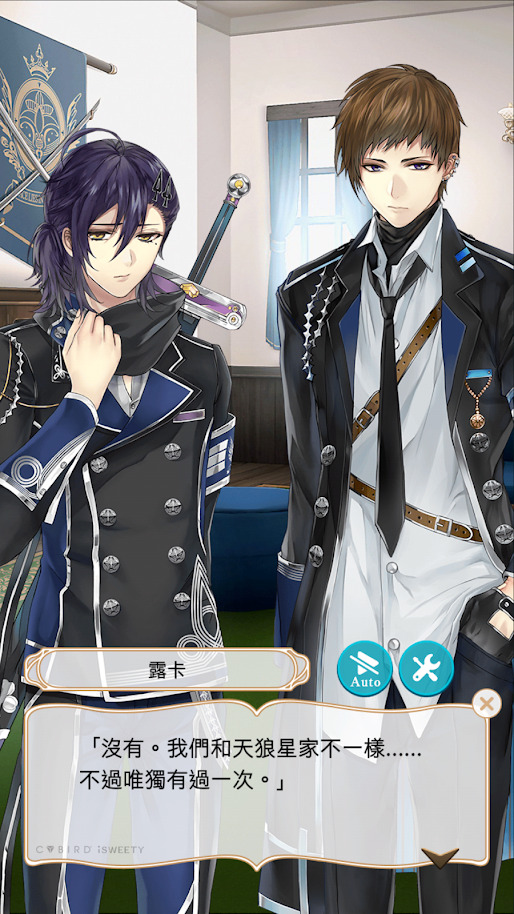
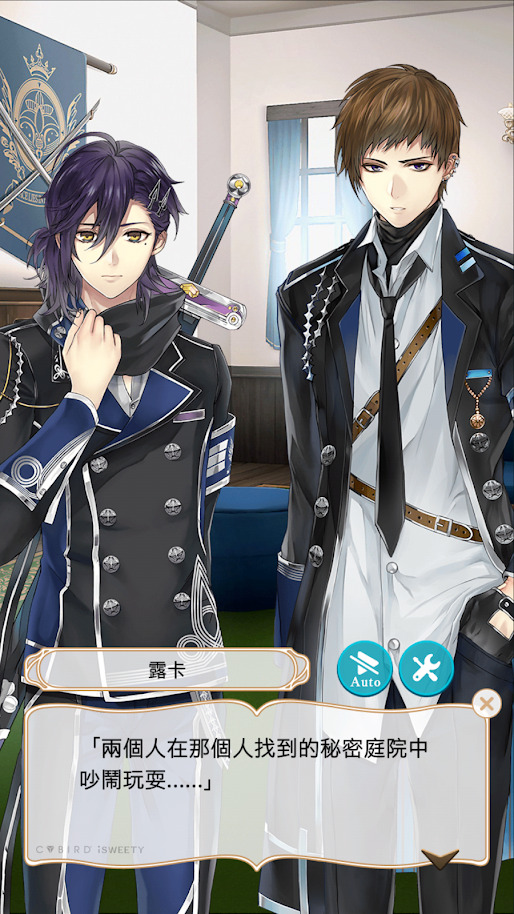




[Translation:
Sirius: My home is always full of flowers, it’s a place that makes your mood lift.
Luka: Yeah...as opposed to Sirius’s family, mine was very quiet.
Luka: Even though it had always been pretty quiet...but ever since “that person” left home, it became even quieter.
Luka: Maybe it was because my family weren’t interested in me, so that’s why it feels so quiet.
Sirius: Haven’t you ever had experiences of playing noisily with Jonah in your home before?
Luka: No. We’re different from Sirius’s family...but there was only one time.
Luka: When I was young, that person had brought me out secretly before.
Luka: The both of us ran around and played in the secret courtyard that person found...
Luka: Until the skies grew dark.
Sirius: ...Is that so. Where is that courtyard full of memories? Is it close to your home?
Luka: I don’t know, I can’t remember...but, it doesn’t matter if I can’t remember it.
Luka: Now I think...it’s alright if that courtyard only exists in my memory.]
*deep breath*
ALKL;KCVKNCKDSA;KWOIWQOIK;FDMX;LZDS;ALKSJFA;LKJ
AKD;XJCEWQ8RJEIU;ANFVDFJSVVF’WDOIJ
;NWEFFKKGDMZXCKCERTIIUIBRI;JDSFJSMF;JLAEKF;LEQKJBNCM
FIRST OF ALL
A SECRET COURYARD???????? THAT JONAH FOUND?????????????? AND BROUGHT LUKA THERE TO PLAY???????????????????????? BUT ONLY ONCE???????????????????????????????????
I wonder how he managed to find it? But also it was to be expected that he would bring Luka bc he always wants to share what he loves with Luka (。・ω・。)ノ♡
Also just imagine the little Clemence bros running around and playing (。・ω・。)ノ♡ ♡ ♡
But like...
OH MY GOD LUKA WHAT HAVE YOU GONE THROUGH ˚‧º·(˚ ˃̣̣̥⌓˂̣̣̥ )‧º·˚
It’s so sadddddddd to think that the Clemence house got even quieter when Jonah left. Also I can’t figure out if Jonah “leaving” means that he left to go to boarding school or if he left to join the Red Army, but that was probably when Luka started to hate Jonah for abandoning him. I can’t imagine what it’s like to grow up in such a quiet and cold place and to have it grow even quieter and colder when the one person you thought cared about you left because now he has other things that are more important than you (/□\*)・゜
Edgar + Kyle: can love between people of different social statuses exist?
The rest of these aren’t released at the moment I wrote this, so I’m mainly just going to be addressing my predictions!
So it’s clear that Jonah and MC are considered to be from different social ranks, even though MC is “Alice the Second” and has the power to nullify magic. She’s probably considered as a “commoner” in the Red Territory, so I can see why it would be difficult for Jonah and MC to get married.
And you know what else this reminds me of??? If we look at Seth’s route, we finally find out that the whole reason Cradle got divided into two was because a Red noble fell in love with a girl from a different social rank. And that romance tore a country apart, so.
Dean + Dalim: about family
Aight here we go. Are Dean and Dalim really family??? Do we finally get to find out??? Or at least get some sort of clue??? Bc I’m torn between the theory that they’re twins with amnesia or if Dean was some sort of clone created by the Magic Tower when they experimented on Dalim. And I have no idea when their routes are gonna be released, so I really hope we get more hints throughout each Ever After route.
Lancelot: Jonah’s tears
THIS IS THE SECOND MINI TALK THAT WILL DESTROY ME AFTER THE LUKA + SIRIUS ONE.
Also this is a reminder that Lancelot was probably the only one who has seen Jonah at his weakest before MC came along. It’s probably to be expected, since they’ve known each other for literally more than half their lives and also since Lancelot saved Jonah.
And technically Luka has known Jonah for the longest time, but I doubt that Jonah will ever show weakness in front of Luka because he considers himself as Luka’s protector, but it’s different in front of Lance. I feel like he can show his weaker side to Lance, and it just emphasizes how deep the relationship between them is.
SO GET READY FOR THE JONALOT FEELS WHEN THIS ONE COMES OUT.
Jonah: what is your ideal proposal?
OK I feel like this one is either gonna be super romantic or super cheesy. Or both, considering the type of person that Jonah is. But I’m gonna love it no matter what bc 1) Jonah can make even the most embarrassing situations funny and touching and 2) I’m too weak for my mille-feuille boi.
.
The screenshots for the “Peek at Romance” thing is here:

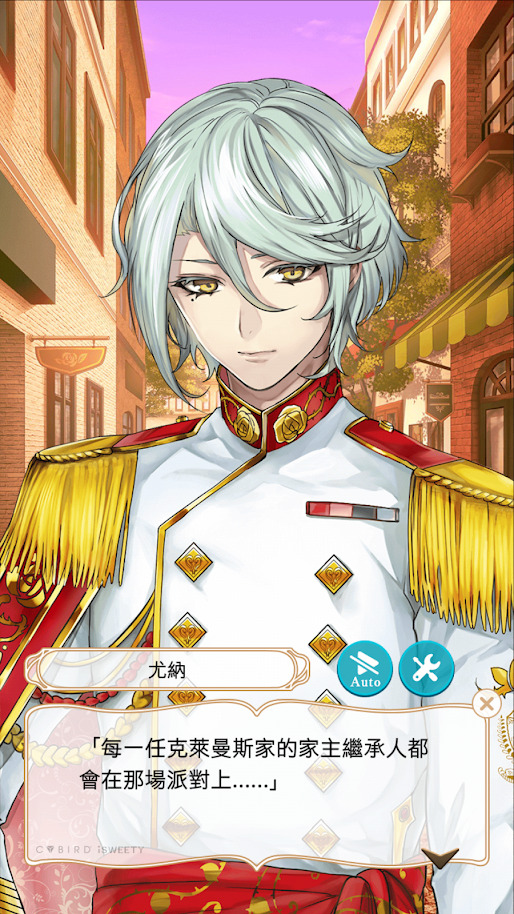

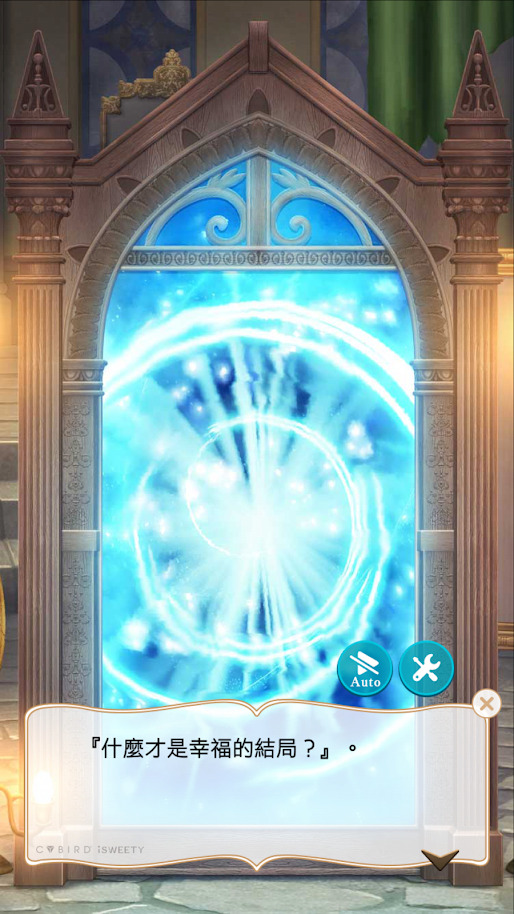

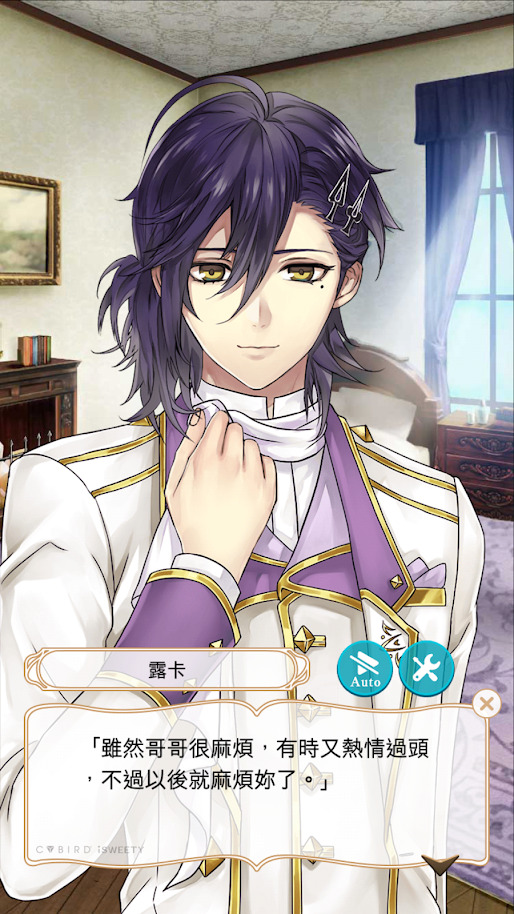
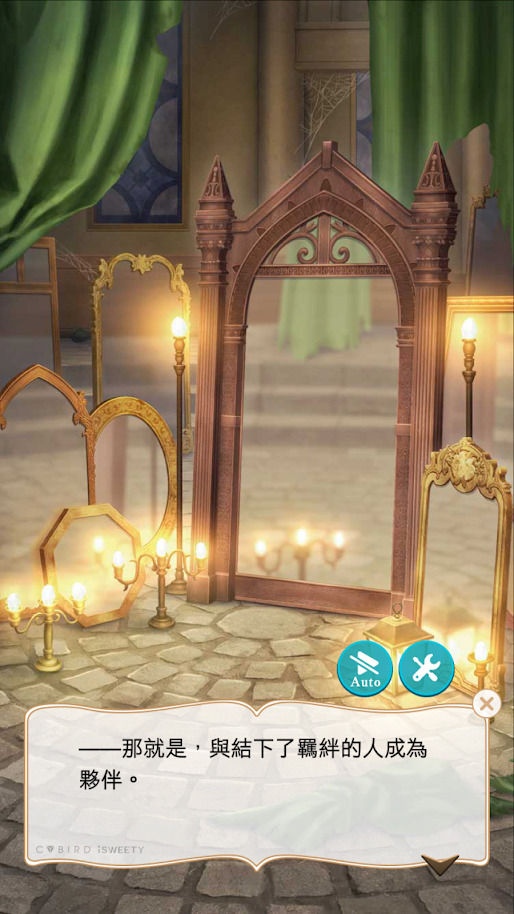
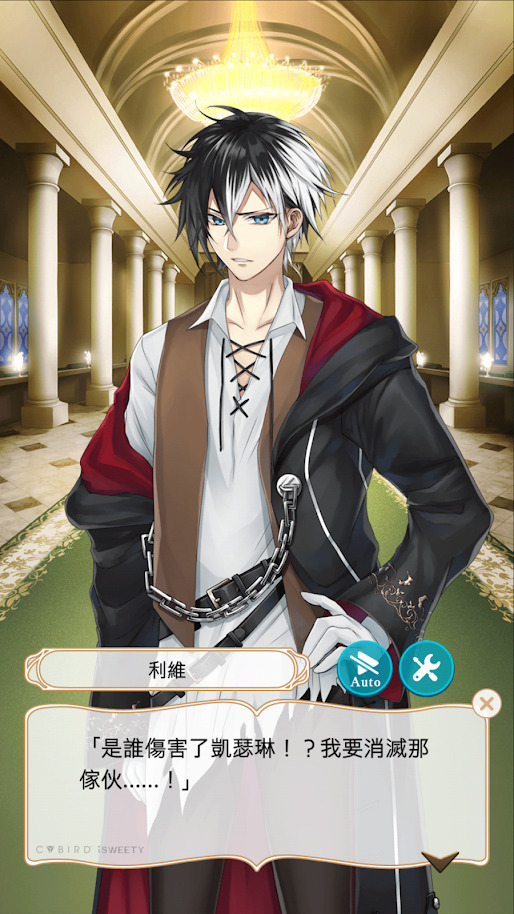
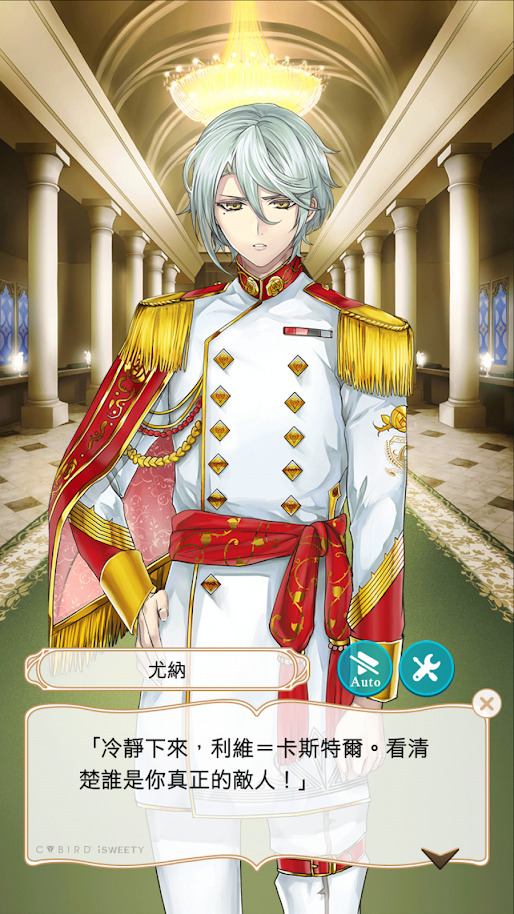
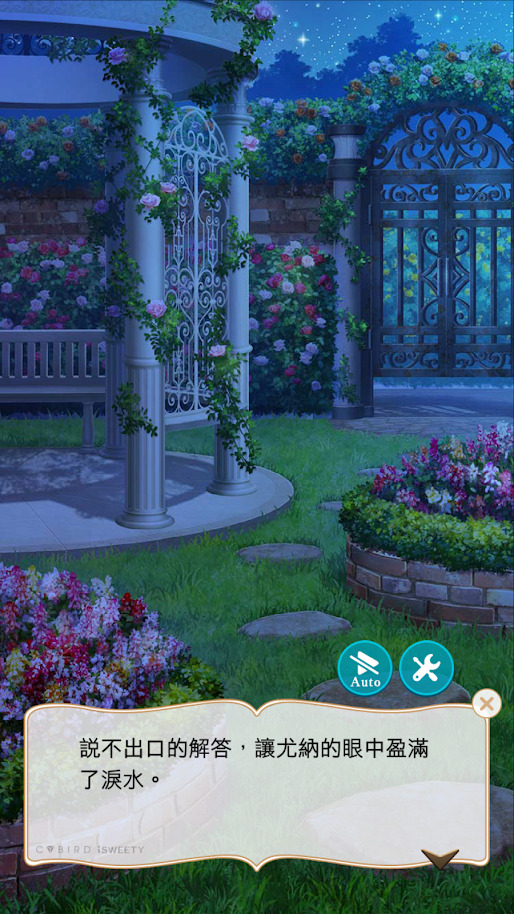

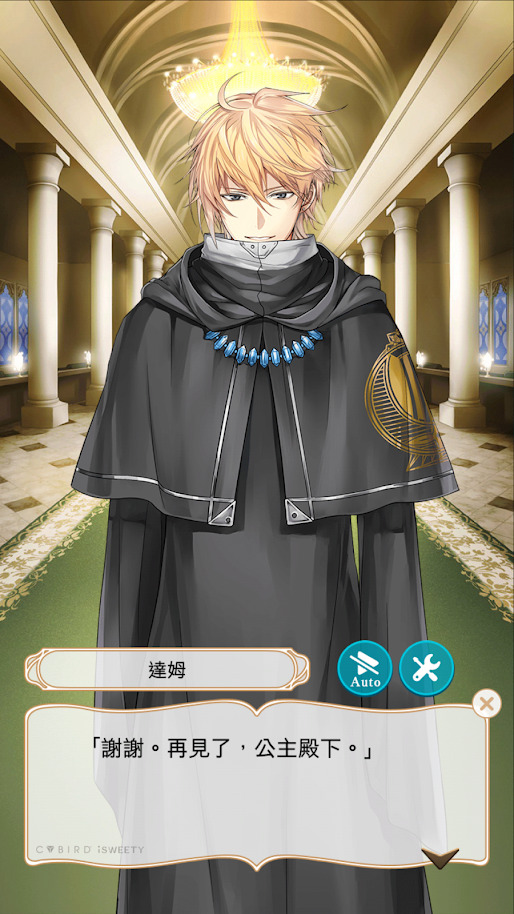
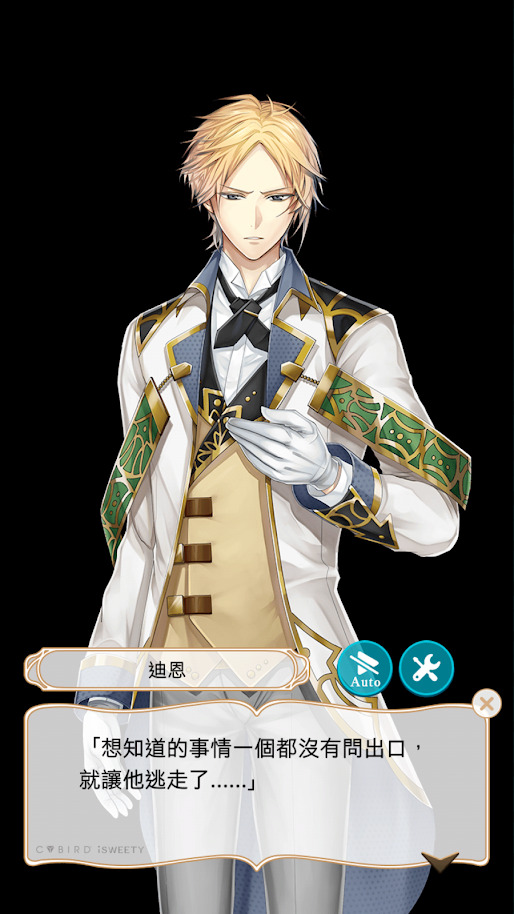
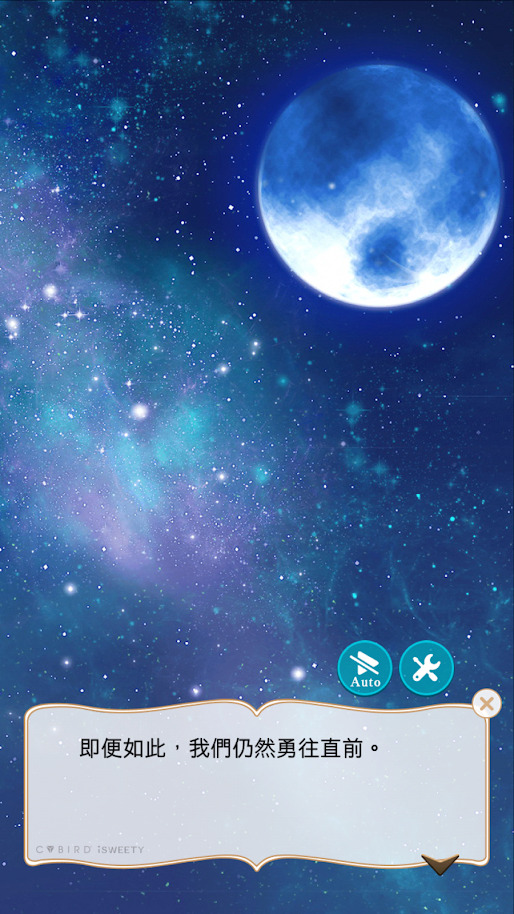

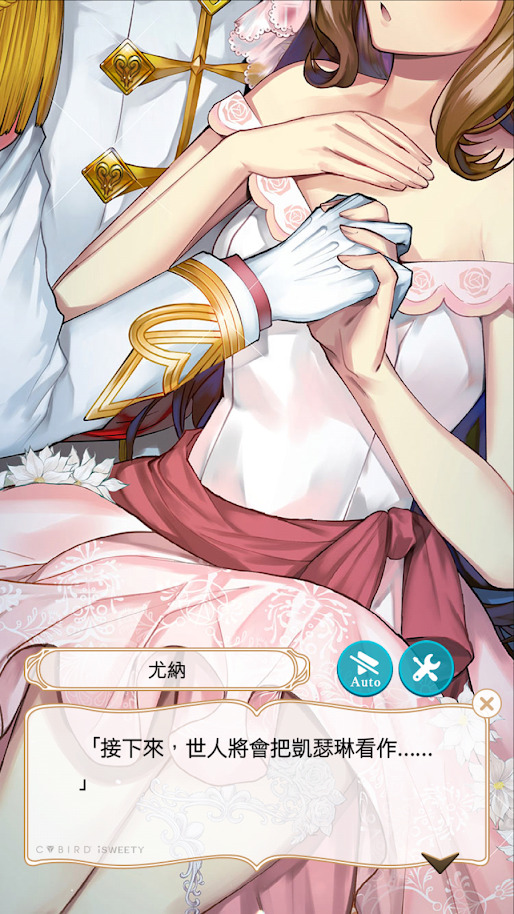
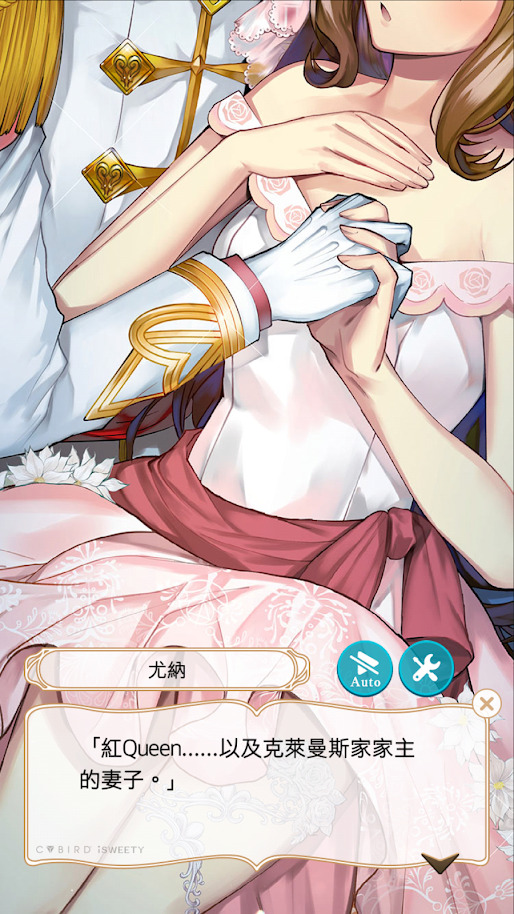
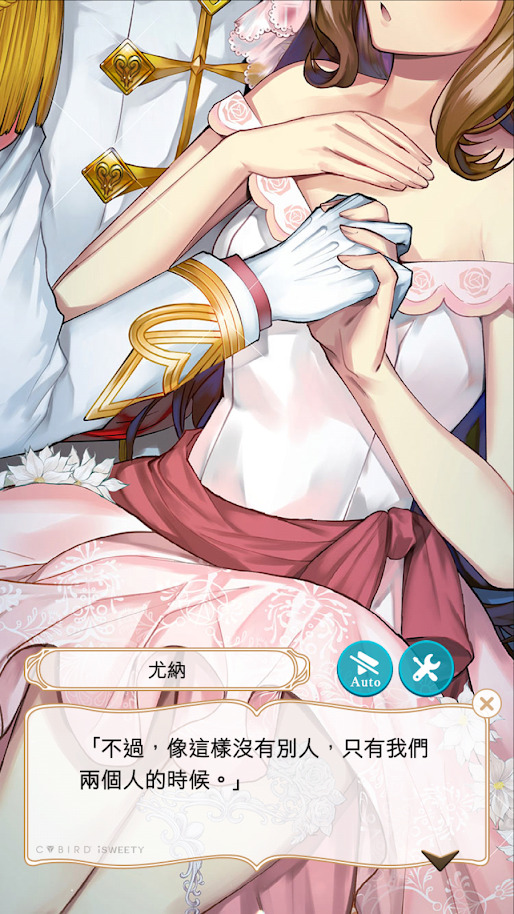
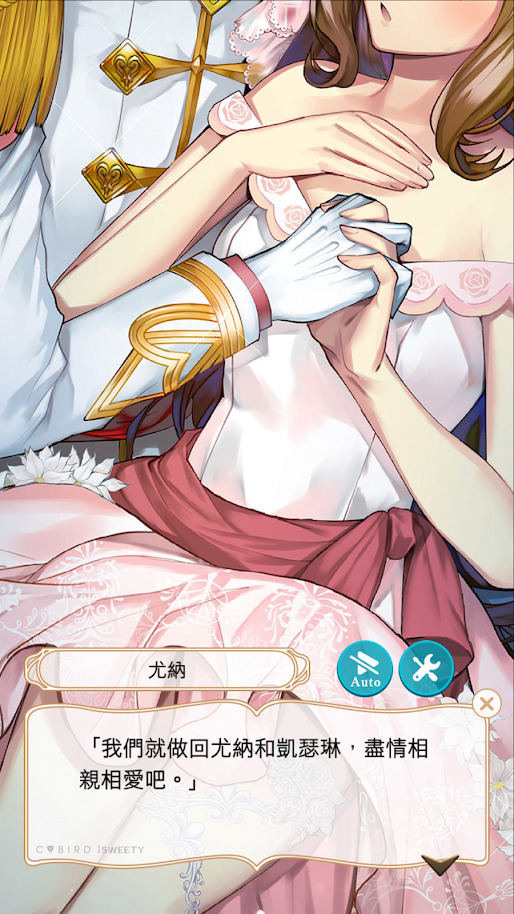



[Translation:
My dear Queen of Hearts, Jonah Clemence.
Jonah: In that party, every heir of the Clemence family will...
Jonah: Publicly introduce his fiancee, receive the acknowledgment and blessing of the whole clan, and finally step into the halls of marriage.
“What is a happy ending?”
--It’s when, the person who cannot be replaced becomes family.
Luka: Even though my brother is troublesome, and sometimes overly enthusiastic, but from now on please take care of him.
--It’s when, you become allies with the person you met.
Levie: Who hurt MC!? I’ll destroy that guy...!
Jonah: Calm down, Levie Castell. See who’s your true enemy clearly!
When he couldn’t provide an answer, it made tears overflow from his eyes.
And--while looking for an answer, it’s also possible to lose something.
Dalim: Thanks. Goodbye, princess.
Dean: I couldn’t ask any of the things I’ve been wondering before he ran...
But even so, we will still advance forward bravely.
This is all to receive the answer--to have a happy ending.
Jonah: From now on, everyone will see you as...
Jonah: The Queen of Heart’s...and also the head of the Clemence family’s wife.
Jonah: But, when there’s no one else, and when it’s just us two.
Jonah: We’ll become Jonah and MC again, and we can love each other as much as we like.
Jonah: I love you, MC.
No matter what happens, he, who is the most beautiful and pure in the world...
Will only accept a future that is even better than a happy ending...!]
I just...literally cannot express my love for this summary.
First of all I’m just gonna talk about the tone. Right off the bat MC calls him “my dear Queen” and it was just. So. CUUUUUUUUUUTE.
Also, the question and theme of “a happy ending” is brought up, and the rest of the sneak peek answers that question (it’s when the people you love become your family and the people you meet becomes your allies), but also explores how they could find those answers (Jonah crying when he couldn’t find an answer and advancing forward bravely because they just want their happy ending). And finally we finish it off with a super Jonah-like statement, announcing that he’ll accept no less than the most perfect ending of them all!
Moving on to the information revealed...it’s pretty cool how there’s a special party for the next head of the Clemence family when they’re ready to announce their marriage and gain approval. Also, it’s kinda wild to think that Jonah will eventually become a head of the family just like his father and his grandfather before that.
AND THE PART WITH LUKA AND LEVIE ARE LITERALLY SO ADORABLE. LIKE, LUKA INSULTING JONAH BUT ALSO LEAVING HIM TO MC AND LEVIE DEFENDING MC FROM PPL WHO WOULD HARM HER IS 10/10 PERFECT
Also it seems that Dean and Dalim’s backstories might be explored more but won’t be resolved just yet. I guess we really do have to wait until their routes get released to find out.
In short, this was an amazing summary of the route. WHY DO I HAVE TO WAIT ANOTHER MONTH UNTIL I CAN FINALLY READ THE WHOLE THING???????????????????????????
.
Also FYI, this is all completely new to me. For the other characters’ sequels, I played it through on Ikerev JP bc I can’t wait until the releases in the TW and English version that’s like, a year later. But I didn’t read Jonah’s sequel bc my Japanese isn’t super good and I wanted to read my man’s story in a language that I can completely understand so I literally have no idea of what to expect apart from what I found out in the campaign release :3
Also also I’m probably gonna be posting for every part in the story I’m going through BC I JUST LOVE JONAH THAT MUCH. I guess it would make up for my inactivity this month ^^;
#ikemen revolution#ikerev#jonah clemence#ikerev jonah#jonah's sequel#ever after#i SCREECHED when i saw the announcement#no joke#i thought it would only come out during september#so that was definitely a pleasant surprise#i need to quickly stock up on story tickets this month#i only have around 45 rn#which means i can only read 9 parts at once#THAT IS SIMPLY NOT ENOUGH
21 notes
·
View notes
Text
Lineage
“In the world of dragons, All dragons are the offspring of the Dark King, directly or indirectly. The Dark King is the source of all dragon lineage, Yanling and Hybrids in the world. It is said that his wings can obliterate the sky and cover a mountain and the realm of his Yanling could cover half the planet.”
Professor Guderian lectured his class “Dragon Lineages 101” in the largest hall in Cassell, able to seat up to 80 people, but this class was comparatively small, about 25, and composed entirely of Freshmen. It’s also the oldest hall. The original frescos still lined the top of the domed ceiling, with scenes of war, men bearing spears, bows bent back with arrows and fire breathing dragon opponents that dwarfed them.
These scenes and Guderian’s words convinced Tigre that he’d seen the actual Dark King in his vision - that voice that could shake the ground and shake his bones from the inside out, those wings that obscured the moon in the sky. When he stood on the throne, a great flock of dragons surged up and he was caught up in it.
This simple lesson was already taught to him, but in pictures.
He rested his cheek in his hand, looking up at the ceiling. On the first class of the first day of school, he had already convinced himself that he was right where he needed to be. He sighed, dreamily contented.
A sharp elbow interrupted his euphoria. Porsche brought his attention back to the lesson.
“Dragons are grouped by their generations.” Guderian switched on a slideshow of a chart. “Generally speaking, the closer a dragon’s lineage is to first or second generation, the smarter, stronger, and more capable it is, and the higher tier Yanling it has. The Dark King is Generation Zero, above the the first generation.”
“The known first generation includes the Light King and the Four Lords that were directly created by the Dark King. The Four Lords control the four classical elements of Earth, Wind, Fire, and Water, and the Light King controls the fifth element of Spirit. Each of the Four Lords are actually twins of dragons who can combine their bodies to attain their ultimate powers. The Light King may have been a set of twins as well but evolved to transmit her genes via parasite. Next slide.”
“The Second Generation is far more numerous, created by the Four Lords and are called ‘princes’. A very high class prince is called a ‘lord’, not to be confused with the Four Lords. All prince-level dragons are recorded by their names and there are a few dozen of them. Next slide.”
“The third generation and below are exponentially weaker. They’re still stronger than humans but it’s easy for humans and the modern Hybrids to deal with them with weapons and manpower.”
Outside the lecture hall, umbrellas bloomed like black flowers under the steady rain. The students without the foresight to bring umbrellas dashed through the rain with their backpacks over their heads.
“I wonder what lineage I am.” Tigre mused, walking alongside the sisters.
“Given your high level of ranking on the test? First Gen for sure. Only First Gen can reach S level. The lower generations don’t resonate as well because they don’t have as much access to those high level genes needed to rank that high. Cassell wants the strongest hybrids here. So they really want the high quality first generation genes to fight in the war. That’s why the 3E is important. If you want to kill the Dragon Kings, you need Dragon King level lineages for hybrids.” Ruby helpfully explained as she walked alongside her sisters.
“You’re rank A. So that means you’re first generation as well?” Tigre asked.
“That’s correct, though our family lineage dramatically improved in one generation. It’s quite interesting. We had a few A-ranks in our family, my mother is A-ranked, married to A-ranked in the hopes of getting one A-ranked child, but she got three. Some would say that the appearance of more high level hybrids from around the world at Cassell College, from areas where previously few or none existed, is a bad sign. A sign that the awakening of the Dark King will happen very soon.” Celeste said softly.
“I don’t really see the connection.” Tigre scratched his head.
“There was one S-ranked student before Lu Mingfei around twenty ago but now we have two within 3 years and the ratio of A-rankers has increased as well. The voice of the Dark King could span the world and suppress every dragon within it. It would makes sense that the stirring of the Dark King could cause a reaction in those who are already attuned. They call it “Blood Call Theory.” Of course, this is just a theory with no proof.”
Tigre went quiet. The only person who called him was Chu Zihang. Before seeing that man, he never felt a special kinship with anything. He didn’t understand the existence of dragons until he heard the words through the speaker at the 3E test. This ‘Blood Call’ theory didn’t seem to apply to him.
At the same time, when he heard the recording through the music, he recognized and responded immediately and without question. Something had been there all his life, but he had no point of reference. Even if he had been called, he couldn’t respond.
He couldn’t remember anything outside that basement. He wasn’t born there was he? People should have fathers and mothers be they dragons or humans. Everything he learned at Cassell, he associated it with his 3E vision. But he was an adult, alive for two decades. Beyond the 3E, there was only the hospital and the dark cave-like cage where he fought and ate and slept. No parents, no childhood.
“Penny for your thoughts?” Ruby asked. “You look upset about something.
Tigre lifted his head and looked at the three girls who stared at him in rapt attention. “Oh… I was just trying to understand.”
“Do you feel like something is calling you?” Celeste asked carefully.
“No. I was trying to remember if I heard something like a Blood Call. But I… I don’t remember anything.”
“Don’t remember anything? Do you have amnesia?” Porsche who had been texting contentedly as she walked suddenly caught up from where she’d fallen behind.
“Amnesia…”
“It’s when you lose your memories. Like you hit your head or something and you can’t remember your past. Tigre is a weird name. That’s probably not your real name.”
“Porsche.” Ruby interrupted. “I think maybe we should change the subject.”
“Why?” She put her phone away, tilting her head to look up at him. “Tigre. Aren’t you interested in where you come from? You were saying that you wanted to know which Lineage you had. Who gave you the name Tigre?”
“I don’t know. That’s just what people called me…” The shadowy figures that opened the cage. They called him and woke him up and opened the cage and let out the monsters to feed him. They called ‘Tigre’ and told him to ‘come and get it’. That was the extent of his human contact that he could recall. He felt a pain in his heart, like it was being squeezed.
“What people?”
“Porsche stop! You’re upsetting him.”
Tigre wiped at his face and smiled. “It’s just the rain. Don’t worry.”
6 notes
·
View notes
Text
Diabolik Lovers Chaos Lineage: Shu Sakamaki (Story 02 + CG)
In terms of the gameplay: The black choices lead up to a bad ending, the white choices lead up to a good ending. Please no reposting onto other sites, ask me before translating this into another language too! I’m an amateur translator, but I hope you do enjoy it anyway!♡
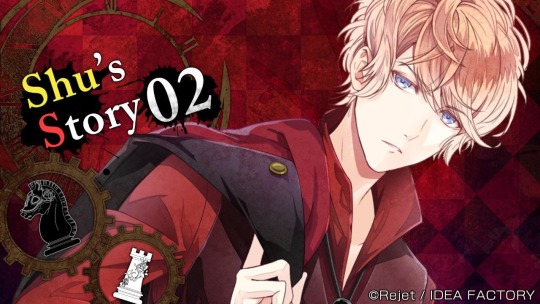
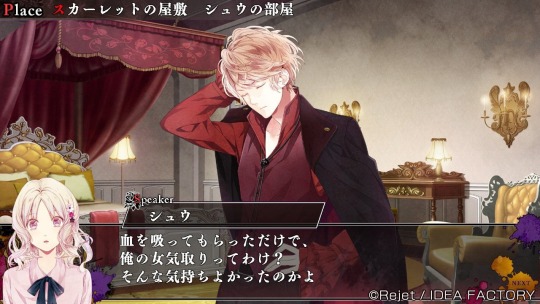
Place: Scarlet Mansion - Shu's bedroom
Shu: Just because I sucked your blood, you‘re acting like you’re mine now? I wonder how good you felt.
As your guard, I don’t really have special hobbies besides sleeping. That’s why I don’t want this situation to change.
Yui: Shu-san...?
(What’s with those... cold eyes?)
Shu-san do you know who I am... ?
Shu: The traditional Eve. The key to become king. That’s what I know.
Yui: W-Well that’s not wrong...
(What's going on? Is he mocking me? I have to calm down and think)
(Yes, I woke up at that strange church... everything was weird since that time)
(Everyone is fighting with weapons, fighting for me, Eve)
(Even the brother’s relationship changed. Where are we? I though we should’ve been in Kanashimachi!)
Shu: Hey, are you still stunned that your blood got sucked?
Yui: Shu-san! It seems like we’re caught up in a weird situation!
Shu: Hm? What do you mean?
Yui: I can’t explain it myself but...
This isn’t Kanashimachi, is it? This mansion seems to be in another place...
Besides, how did Shu-san become brother’s with Yuma-kun? That’s not your real family!
Shu: What’s wrong with Yuma being my brother?
Yui: N-Nothing! But in the reverse winding family, Shu-san is the eldest son and Ayato-kun and the others are your younger brothers—
(Oh but it may be...)
...By any chance. Shu-san don‘t you feel like your memories are weird at some points?
Shu: What?
Yui: (Shu-san isn’t the only one. Even Reiji-san and everyone else are having weird memories)
(Why did that happen? Why... !?)
Shu: *sigh*... That's right. Are you trying to manipulate my mind by saying something inappropriate?
Yui: No... everything I said is true!
Shu: Okay. Apart from that, I don’t care. I wasn’t interested in what you say in the first place.
Yui: That’s! Have you forgotten all the important things we’ve done so far, Shu-san?
You really don’t care about them?
Shu: I don‘t. Whatever you say I’m not interested
Yui: ugh...
(This cold attitude... it’s like the time we first met)
(Did he really forget everything? All the time we spent together?)
My name is... Yui Komori, you forgot it, didn’t you? My real name isn’t Eve...
Shu: So that is your real name?
Yui: ...ngh!
Shu: Eve is necessary to become the king. It’s enough if I only know that
Yui: (Those cold eyes and words. His attentive attitude)
(I have no idea what happened to him. But there’s nothing I can do either)
(For now... I’m just a toy and food for Shu-san... he doesn’t care at all about me...)
Choices
1) — holding tears (black)
2) — think desperately (white) ♡ ♡ ♡
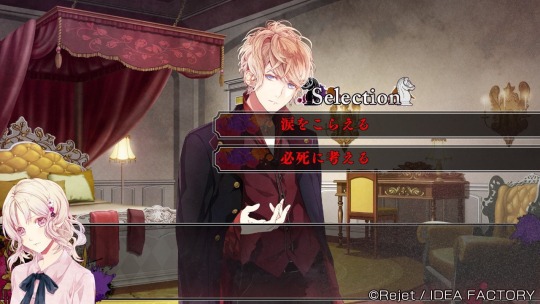
— holding tears
Yui: (I can’t cry here. If I cry I won’t make any progress)
(But my vision is already getting blurry...ngh)
Shu: What’s the reason that you’re crying now? You’re a woman who takes more time than I thought.
— think desperately ♡
Yui: (I have to think about this because I spent a long time together with Shu-san already)
(Because we were in a relationship where we could laugh together. I don’t want to give up here!)
Shu: I don‘t know what you think about me, but keep your silly thoughts to yourself
end Choices
Shu: I’ll leave now. I already wasted enough time with you here.
*Shu walks away*
Yui: Shu-san! Please wait!
Shu-san!!
*door closed*
Yui: He’s gone...
(Shu-san... so you really forgot everything... ?)
(We spent so much time at the Sakamaki mansion and we even went to school together)
(He also forgot about my feelings... right?)
(This hurts so much)
Monologue
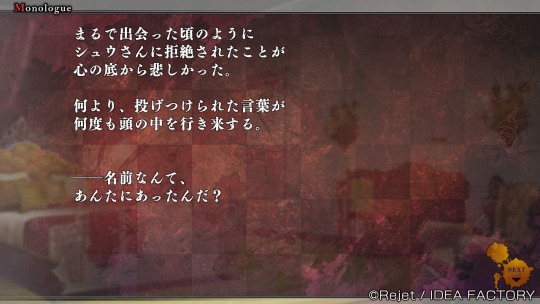
My feelings were crushed from the bottom of my heart when he rejected me as if we never met before.
Above all, his words were thrown in and out of my head many times.
— What was your name?
In the eyes of Shu-san, I only appear as Eve.
Just as a tool to become the king, no love, no interest, just Eve.
I swayed between those cold eyes, I had no choice but to act as Eve, I’m not Yui in this mysterious situation.
*next day*
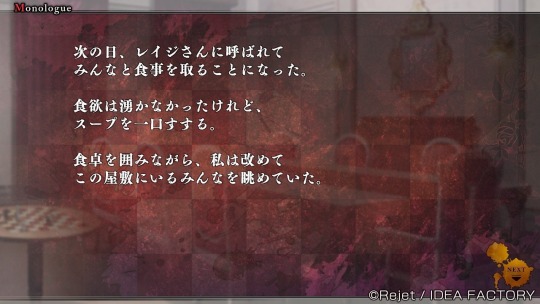
On the next day, I was called by Reiji-san and they decided that I should eat with everyone.
I actually don’t have any appetite but I‘ll try a little from the soup.
As everyone surrounded the dining table, I once again looked at the people in this mansion.
end Monologue
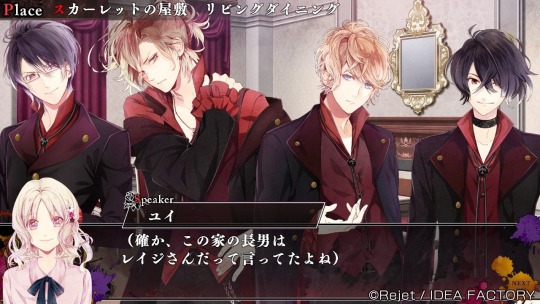
Place: Scarlet Mansion - Livingroom
Yui: (Yes, they said that the eldest son of this house was Reiji-san)
(Shu-san is the second and Yuma-kun is the third eldest)
(Everyone's behavior is unusual, but after all everyone’s memories are strange too)
(And the last of those four is Kino-san... Kino-kun, I wonder how I should address him. Yesterday I met him for the first time tho...)
(Similar to us, they also got caught up in this situation, so they don’t remember either)
(Even if I want them to know who they are, I can’t ask them to listen to me because everyone wouldn’t believe me in the first place...)
Reiji: Eve. Your hand has stopped for awhile. Is my food not to your liking?
Yui: T-That’s not true at all! I really loved everything you cooked yet.
Reiji: Now you’re just lying to me. Today is the first time you’ve actually tried my food.
Yui: Oh... yea, that’s right.
Kino: Hehe, was that a joke? I wish I could laugh
Yui: (Hm? Is Kino-kun having a smartphone?)
Kino: Hey, why are you starring at me?
Yui: Hmm... I was just wondering what you’re doing.
Kino: It doesn't really matter what I do, but I‘m playing a game.
Reiji: That behavior is unacceptable, Kino. We’re eating right now
Kino: Yes sure. I understand
Yui: (If I’d make a phone call with Kino-kun's smartphone, I could get in touch with someone... !)
(But, this isn’t the atmosphere that I could talk about that, because Reiji-san’s eyes are pretty scary.)
(While thinking about yesterday, I don‘t even think Kino-kun would approach me...)
Reiji: Your hand stopped again. I guess you didn’t listen. Do you want to be scolded by me?
Yui: I-I’m so sorry!
Reiji: Really... Your manners and courtesy must be attacked properly.
Yuma: Reiji, that’s enough for now. Just continue eating your soup.
Hey, Eve. It doesn’t matter whether it’s your courtesy or manners, because it’s the most important to finish your meal first.
However, you aren’t allowed to leave the vegetables. Don’t waste them
Yui: Yes. Well, actually, are those vegetables all grown up by you?
Yuma: Hm? Oh, that’s right. The tomatoes in this salad were just done growing today
Yui: (So Yuma-kun is doing home gardening even this isn’t his own house ...)
Yuma: Those are vegetables which I brought up with great care. Make sure to eat them all
Shu: We’re vampires so we actually don’t need to eat any of those.
Yuma: Ah, damn it! Shu! You’re leaving the tomatoes again!
I always say you should eat properly! Even if you don’t need it!
Yui: (After all, it’s comforting. If they act like that, you don’t notice they aren‘t related by blood at all)
(But only I know, that those aren‘t his real brothers ...)
*time passes*
Yui: Thank you for the meal.
(I thought I didn't have any appetite, but I'm still hungry, even tho I ate everything)
(But, I’ll be okay from now on. If I’d complain that the current situation is weird, everyone wouldn‘t believe me anyway)
(And again... Shu-san couldn‘t even look at me while eating...)
Shu: *yawn*... I’ll go back to my room now.
Reiji: Please wait. You should take Eve with you if you leave already.
Shu: Thats not necessary she can go back to her room alone.
Reiji: I don’t know what would happen if she walks around alone again. Yesterday‘s incident was a huge matter for me.
Yui: (Ugh... He’s talking about his broken plate)
Reiji: Well, I will go back to my room as well. Shu, please keep your eyes on Eve.
*Reiji leaves*
Yui: (Oh, he left. Now it’s only me and Shu-san)
Uhm, excuse me...
Shu: You‘ll be fine on your own, you know the way to your own room.
Yui: I'm sorry... but if you leave me now, wouldn’t Reiji-san get angry at you again?
Shu: He would. It’s because you chose me as your guard.
Yui: (Everything is so rooted... )
Shu: Oh, I see. In short, I finally understood his Intention.
Yui: Huh?
Shu: Come on, we’re leaving now.
*Shu leaves*
Yui: Hm? Please wait, Shu-san!
(What got into him so suddenly? Maybe he‘ll really bring me to my room?)
(But where are we going? This isn‘t the way to my room, is it...?)
Place: Scarlet Mansion — Shu's bedroom
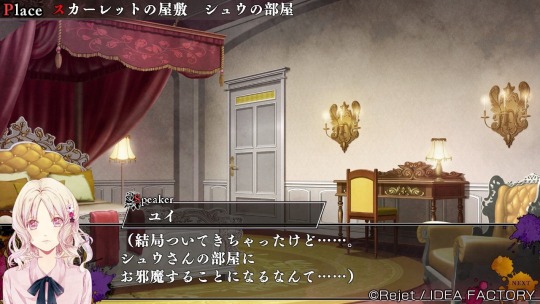
Yui: (After all, I thought... we’d return to my room but this is Shu-san’s room...)
(Surely as my guard he needs to escort me but ...)
(After all, am I really going to stay and sleep here from now on without going back to my room ...?)
Shu: You‘re so quiet, just what are you thinking?
Yui: What!? W-Well I nothing... uhm
(I've been in Shu's room many times already, but I'm probably anxious because this place and the situation are different)
Shu: Your face turned red. Are you happy to come to a man's room or do you even think about doing unapproved things?
Yui: I-I didn’t think that! Why would you think something like that!
Shu: For some reason, you came up to my room without resistance tho.
Yui: T-That is...
I was just going to my lover‘s room, so I didn’t think it would be strange...
Shu: ... Lovers? You and me?
Yui: (I... I really said that to him)
Shu: You’re saying those strange things again, why do you want to catch my attention so bad? You really are a lewd woman.
Yui: That’s... ! That’s not really what I wanted.
Shu-san may not remember because his memories are strange but ...
Shu: Remember, remembering memories. You say that every time. You’re saying it sooo often, I can‘t listen to it anymore by now.
Don‘t think I‘d believe any of those stupid things you‘re saying.
Yui: (Certainly, everyone‘s dealing with something like amnesia, but it’s unnatural that their memories are rewritten like that)
(I can’t believe this is happening...)
There... There is no way this happened naturally
Is that supposed to mean, this situation is brought up by someone... !? But who is it?
Shu: Just what are you blabbering about. It seems like you‘ve been sleeping for too long and that’s why you‘re acting weird?
Seems like you didn't like the kiss from Reiji when you got up?
Yui: Eh!? Reiji-san!? Why do you think that?
Shu: You don‘t even know about that? That’s the usual tradition.
Eve, the key to becoming the king, is sleeping in the church and wakes up by a kiss.
I wondered if you’re just lying to me about that now?
Yui: When I got up at the church, there was no one. S-So that means no one kissed me!
Shu: Hmh. Well, it seems that the lore of this tradition was just an after-life story which was brought up.
Yui: (Uh... he seems to be upset about this but it has nothing to do with jealousy)
(But I didn‘t woke up with a kiss, I guess. This story sounded more like the sleeping princess)
(It wasn’t such a romantic awakening)
Shu: *yawn*.... I’m getting tired from talking to you. I’ll sleep.
Yui: Oh? What should I do?
Shu: What about letting me sleep properly?
Yui: Ugh...
(He’s as sleepy as always...)
(But it's hard to talk with him like that and I can’t make him remember anything)
Shu-san, can you at least try getting along with me a little more?
Shu: After all, you’re really not giving up with your delusions? I‘m sorry.
Yui: Well, please wait! It's not a delusion, it's a real thing.
I believe that you can do it... !
Shu: ... If so, why don’t you show me your sincerity.
Yui: What... ?
Shu: You said it wasn‘t strange that I sucked your blood yesterday.
That’s why you should donate me your blood. If you can satisfy me, you can talk about whatever you want.
Yui: (Shu-san's eyes changed)
(I should’ve been used to have my blood sucked... yet I'm scared)
(Right now, I am nothing but food. I don't know how much blood he will suck either ...)
Shu: Heh... such a face. So you‘re really declining my offer?
Yui: N-No i‘m accepting your offer... ! You can take as much blood as you want if you listen to me afterwards.
Shu: Is your voice trembling? Laughable.
Yui: Ngh...
Shu: So? You’re offering your blood and I‘ll listen to you later.
Hurry up and get a little closer to me, do you understand?
Yui: I understand...
*Yui gets closer*
(There is no need to be scared. Even if he lost his memories, Shu-san is Shu-san.)
Yui: (Oh, but... my hands are shaking)
Shu: Letting me unbutton your shirt like that, you really are horny.
Yui: This... is... because Shu-san was always... nh
Shu: I see. I don‘t mind. Now, tell me what you want me to do.
Yui: (I'm embarrassing to say something like this ...)
Please... suck my blood
Shu: Hah, aren‘t you trained to be a honest fairy tale princess?
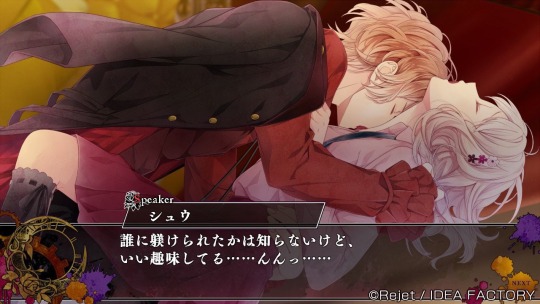
Shu: You should continue begging for me, with that arroused face of yours ... ahh…
Yui: ... ngh!
(I was really bitten.... ngh. It hurts so much...)
Ngh... Shu-san ... It hurts... be a little more... gentle .... ngh..
Shu: I don’t need to show mercy to such a dirty woman
Yui: But... ngh
Shu: It‘s okay as long as you remain silent and let me continue with sucking your blood.
Ahh… hmm… hmm...
Yui: (Hmm... stop.... I only feel pain and the smell of my blood itches in my nose...)
(His fangs are in my neck... There is no sign that he slightly cares for my body)
Shu: Hehe... to be honest, your blood isn’t bad at all.
Deep bitterness is entangled in my throat. It’s the taste of blood that feels fear
Yui: W-Well...
(Although my partner is Shu-san, I‘m still afraid... but)
(If he keeps sucking so much like this, I may be drained and lose my mind... If he won‘t release me anytime soon I might faint—)
Shu-san... ngh. Please... stop...
Shu: Be quiet.
Yui: But... you said if I let you suck my blood you‘ll listen to me...
Shu: I'm not close to be satisfied yet. You‘re just food anyway, so stop moving so much.
Yui: ...ngh!
(Shu-san... what’s with that tone in your voice...? Are you really not caring at all...?)
(That’s right, I‘m not Shu-san‘s lover anymore. Right now... I‘m just food)
*CG fades*
Shu: I don't know why but, I really like that look in your face. It kinda turns me on
Why don‘t you tell me where it hurts the most? Maybe if I let my fangs pierce through your ear
Yui: No... stop...
Shu: You should feel good. *more sucking*
Yui: Ngh... I...
(Yeah ... it hurts ... and he won‘t stop...!)
(My Consciousness is ... at it’s, I ...)
*weird noise*
Shu: Ngh... !? Ugh...
Yui: Huh... ?
(What‘s wrong... he suddenly gulped. Is he okay... ?)
Shu: What was that just now... ?
Yui: Are you okay... ? Seems like something is wrong...
Shu: ...Nevermind. Your blood became thick out of nowhere, that’s why. We might continue later.
Yui: But, if you got a little...
Shu: Who said the food was allowed to talk back? You should just be quiet and give me more of your blood
*Shu blushes*
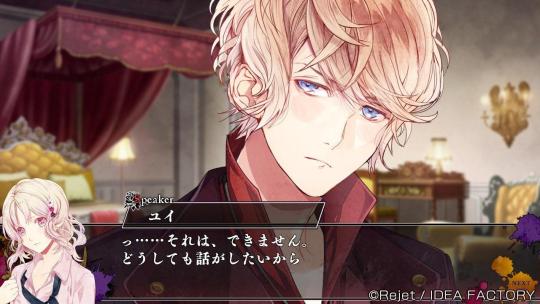
Shu: Oh, or maybe... Was I frightened or scared? Should I run away from you?
Yui: Ngh... you can‘t do that. I really need to talk to you
(Shu is now honest but still scary...)
(But I will definitely get back his memories and return him to the usual Shu-san) (I won‘t give up until then... I don’t want to give up)
Shu: What a ruthless woman. I'm fine, though. I had no intense to escape. Next time I won‘t let anything interrupt me
Yui: ...Understood
Shu: You suddenly act like an adult. Did you give up on resisting already?
Yui: No... but it doesn’t matter if I do as you like or not...
Shu: Heh... I won't do anything about you saying something so apologetic.
I need to scold you. As you wish, I‘ll suck your blood until you‘re dry.
Yui: (It's almost like when we first met. He‘s looking for only my blood in a whim without the slightest interest in me)
(He forces me to offer him my blood, with those cold eyes but even if he doesn’t care what happens to me)
(Even if I get treated badly, my feelings won't change for you... Shu-san)
Monologue
His fangs which were addicted to my blood, pierced deeper in my body.
After that, my consciousness left me and I couldn‘t find time to tell him anything anymore.
That cold gaze and his fangs. Those words who pushed me away.
I feel fear even though he should be the one I love and treasure the most, I‘m sorry
→ Story 03
← Story 01
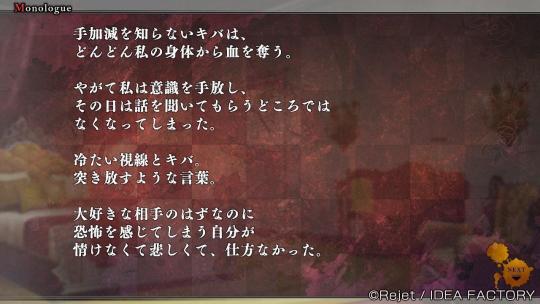
#diabolik lovers#diabolik brothers#diabolik lovers translation#shuu sakamaki#shu sakamaki#chaos lineage#translation#shu sakamaki translation#chaos lineage translation#shuu sakamaki translation#sakamaki#sakamaki shu#komori yui#mukami yuma#sakamaki reiji
197 notes
·
View notes
Link
Robert bowers wanted everyone to know why he did it.
“I can’t sit by and watch my people get slaughtered,” he posted on the social-media network Gab shortly before allegedly entering the Tree of Life synagogue in Pittsburgh on October 27 and gunning down 11 worshippers. He “wanted all Jews to die,” he declared while he was being treated for his wounds. Invoking the specter of white Americans facing “genocide,” he singled out HIAS, a Jewish American refugee-support group, and accused it of bringing “invaders in that kill our people.” Then–Attorney General Jeff Sessions, announcing that Bowers would face federal charges, was unequivocal in his condemnation: “These alleged crimes are incomprehensibly evil and utterly repugnant to the values of this nation.”
The pogrom in Pittsburgh, occurring just days before the 80th anniversary of Kristallnacht, seemed fundamentally un-American to many. Sessions’s denunciation spoke to the reality that most Jews have found a welcome home in the United States. His message also echoed what has become an insistent refrain in the Donald Trump era. Americans want to believe that the surge in white-supremacist violence and recruitment—the march in Charlottesville, Virginia, where neo-Nazis chanted “Jews will not replace us”; the hate crimes whose perpetrators invoke the president’s name as a battle cry—has no roots in U.S. soil, that it is racist zealotry with a foreign pedigree and marginal allure.
The president’s rhetoric about “shithole countries” invites dismissal as crude talk, but behind it lie ideas whose power should not be underestimated. Warnings from conservative pundits on Fox News about the existential threat facing a country overrun by immigrants meet with a similar response. “Massive demographic changes,” Laura Ingraham has proclaimed, mean that “the America we know and love doesn’t exist anymore” in much of the country: Surely this kind of rhetoric reflects mere ignorance. Or it’s just a symptom of partisan anxiety about what those changes may portend for Republicans’ electoral prospects. As for the views and utterances of someone like Congressman Steve King (“We can’t restore our civilization with somebody else’s babies”), such sentiments are treated as outlandish extremism, best ignored as much as possible.
The concept of “white genocide”—extinction under an onslaught of genetically or culturally inferior nonwhite interlopers—may indeed seem like a fringe conspiracy theory with an alien lineage, the province of neo-Nazis and their fellow travelers. In popular memory, it’s a vestige of a racist ideology that the Greatest Generation did its best to scour from the Earth. History, though, tells a different story. King’s recent question, posed in a New York Times interview, may be appalling: “White nationalist, white supremacist, Western civilization—how did that language become offensive?” But it is apt. “That language” has an American past in need of excavation. Without such an effort, we may fail to appreciate the tenacity of the dogma it expresses, and the difficulty of eradicating it. The president’s rhetoric about “shithole countries” and “invasion” by immigrants invites dismissal as crude talk, but behind it lie ideas whose power should not be underestimated.
The seed of Nazism’s ultimate objective—the preservation of a pure white race, uncontaminated by foreign blood—was in fact sown with striking success in the United States. What is judged extremist today was once the consensus of a powerful cadre of the American elite, well-connected men who eagerly seized on a false doctrine of “race suicide” during the immigration scare of the early 20th century. They included wealthy patricians, intellectuals, lawmakers, even several presidents. Perhaps the most important among them was a blue blood with a very impressive mustache, Madison Grant. He was the author of a 1916 book called The Passing of the Great Race, which spread the doctrine of race purity all over the globe.
Grant’s purportedly scientific argument that the exalted “Nordic” race that had founded America was in peril, and all of modern society’s accomplishments along with it, helped catalyze nativist legislators in Congress to pass comprehensive restrictionist immigration policies in the early 1920s. His book went on to become Adolf Hitler’s “bible,” as the führer wrote to tell him. Grant’s doctrine has since been rejuvenated and rebranded by his ideological descendants as “white genocide” (the term genocide hadn’t yet been coined in Grant’s day). In an introduction to the 2013 edition of another of Grant’s works, the white nationalist Richard Spencer warns that “one possible outcome of the ongoing demographic transformation is a thoroughly miscegenated, and thus homogeneous and ‘assimilated,’ nation, which would have little resemblance to the White America that came before it.” This language is vintage Grant.
Most Americans, however, quickly forgot who Grant was—but not because the country had grappled with his vision’s dangerous appeal and implications. Reflexive recoil was more like it: When Nazism reflected back that vision in grotesque form, wartime denial set in. Jonathan Peter Spiro, a historian and the author of Defending the Master Race: Conservation, Eugenics, and the Legacy of Madison Grant (2009), described the backlash to me this way: “Even though the Germans had been directly influenced by Madison Grant and the American eugenics movement, when we fought Germany, because Germany was racist, racism became unacceptable in America. Our enemy was racist; therefore we adopted antiracism as our creed.” Ever since, a strange kind of historical amnesia has obscured the American lineage of this white-nationalist ideology.
Madison grant came from old money. Born in Manhattan seven months after Robert E. Lee surrendered to Ulysses S. Grant at Appomattox, he attended Yale and then Columbia Law School. He was an outdoorsman and a conservationist, knowledgeable about wildlife and interested in the dangers of extinction, expertise that he soon became intent on applying to humanity. When he opened a law practice on Wall Street in the early 1890s, the wave of immigration from southern and eastern Europe was nearing its height. “As he was jostled by Greek ragpickers, Armenian bootblacks, and Jewish carp vendors, it was distressingly obvious to him that the new arrivals did not know this nation’s history or understand its republican form of government,” Spiro writes in his biography.
Jews troubled Grant the most. “The man of the old stock,” he later wrote in The Passing of the Great Race, is being “driven off the streets of New York City by the swarms of Polish Jews.” But as the title of his 1916 work indicated, Grant’s fear of dispossession ran wide and deep:
These immigrants adopt the language of the native American, they wear his clothes, they steal his name, and they are beginning to take his women, but they seldom adopt his religion or understand his ideals and while he is being elbowed out of his own home the American looks calmly abroad and urges on others the suicidal ethics which are exterminating his own race. Grant was not the first proponent of “race science.” In 1853, across the Atlantic, Joseph Arthur de Gobineau, a French count, first identified the “Aryan” race as “great, noble, and fruitful in the works of man on this earth.” Half a century later, as the eugenics movement gathered force in the U.S., “experts” began dividing white people into distinct races. In 1899, William Z. Ripley, an economist, concluded that Europeans consisted of “three races”: the brave, beautiful, blond “Teutons”; the stocky “Alpines”; and the swarthy “Mediterraneans.” Another leading academic contributor to race science in turn-of-the-century America was a statistician named Francis Walker, who argued in The Atlantic that the new immigrants lacked the pioneer spirit of their predecessors; they were made up of “beaten men from beaten races,” whose offspring were crowding out the fine “native” stock of white people. In 1901 the sociologist Edward A. Ross, who similarly described the new immigrants as “masses of fecund but beaten humanity from the hovels of far Lombardy and Galicia,” coined the term race suicide.
Grant blended Nordic boosterism with fearmongering, and supplied a scholarly veneer for notions many white citizens already wanted to believe. But it was Grant who synthesized these separate strands of thought into one pseudo-scholarly work that changed the course of the nation’s history. In a nod to wartime politics, he referred to Ripley’s “Teutons” as “Nordics,” thereby denying America’s hated World War I rivals exclusive claim to descent from the world’s master race. He singled out Jews as a source of anxiety disproportionate to their numbers, subscribing to a belief that has proved durable. The historian Nell Irvin Painter sums up the race chauvinists’ view in The History of White People (2010): “Jews manipulate the ignorant working masses—whether Alpine, Under-Man, or colored.” In The Passing of the Great Race, the eugenic focus on winnowing out unfit individuals made way for a more sweeping crusade to defend against contagion by inferior races. By Grant’s logic, infection meant obliteration:
The cross between a white man and an Indian is an Indian; the cross between a white man and a Negro is a Negro; the cross between a white man and a Hindu is a Hindu; and the cross between any of the three European races and a Jew is a Jew. What Grant’s work lacked in scientific rigor, it made up for in canny packaging. He blended Nordic boosterism with fearmongering, and supplied a scholarly veneer for notions many white citizens already wanted to believe. Americans’ gauzy idealism blinded them, he argued, to the reality that newcomers from the Mediterranean and eastern Europe—to say nothing of anyone from Asia or Africa—could never hope to possess the genetic potential innate in the nation’s original Nordic inhabitants, which was the source of the nation’s greatness. Grant gleefully challenged foundational ideas:
We Americans must realize that the altruistic ideals which have controlled our social development during the past century and the maudlin sentimentalism that has made America “an asylum for the oppressed,” are sweeping the nation toward a racial abyss. If the Melting Pot is allowed to boil without control and we continue to follow our national motto and deliberately blind ourselves to all “distinctions of race, creed or color,” the type of native American of Colonial descent will become as extinct as the Athenian of the age of Pericles, and the Viking of the days of Rollo. His thesis found eager converts among the American elite, thanks in no small part to his extensive social connections. The New York Times and The Nation were among the many media outlets that echoed Grant’s reasoning. Teddy Roosevelt, by then out of office, told Grant in 1916 that his book showed “fine fearlessness in assailing the popular and mischievous sentimentalities and attractive and corroding falsehoods which few men dare assail.” In a major speech in Alabama in 1921, President Warren Harding publicly praised one of Grant’s disciples, Lothrop Stoddard, whose book The Rising Tide of Color Against White World-Supremacy offered similar warnings about the destruction of white society by invading dusky hordes. There is “a fundamental, eternal, inescapable difference” between the races, Harding told his audience. “Racial amalgamation there cannot be.”
Harding’s vice president and successor, Calvin Coolidge, found Grant’s thesis equally compelling. “There are racial considerations too grave to be brushed aside for any sentimental reasons. Biological laws tell us that certain divergent people will not mix or blend,” Coolidge wrote in a 1921 article in Good Housekeeping.
The Nordics propagate themselves successfully. With other races, the outcome shows deterioration on both sides. Quality of mind and body suggests that observance of ethnic law is as great a necessity to a nation as immigration law.
Endorsing Grant’s idea that true Americans are of Nordic stock, Coolidge also took up his idea that intermarriage between whites of different “races,” not just between whites and nonwhites, degrades that stock.
Perhaps the most important of Grant’s elite admirers were to be found among members of Congress. Reconstruction struggles; U.S. expansion in the Philippines, Puerto Rico, and Hawaii; high levels of immigration—each had raised the specter of white people losing political power and influence to nonwhite people, or to the wrong kind of white people. On Capitol Hill debate raged, yet Republicans and Democrats were converging on the idea that America was a white man’s country, and must stay that way. The influx of foreigners diluted the nation with inferiors unfit for self-government, many politicians in both parties energetically concurred. The Supreme Court chimed in with decisions in a series of cases, beginning in 1901, that assigned the status of “nationals” rather than “citizens” to colonial newcomers.
A popular myth of American history is that racism is the exclusive province of the South. The truth is that much of the nativist energy in the U.S. came from old-money elites in the Northeast, and was also fueled by labor struggles in the Pacific Northwest, which had stirred a wave of bigotry that led to the Chinese Exclusion Act of 1882. Grant found a congressional ally and champion in Albert Johnson, a Republican representative from Washington. A nativist and union buster, he contacted Grant after reading The Passing of the Great Race. The duo embarked on an ambitious restrictionist agenda.
As the eugenics movement gathered force in the U.S., “experts” began dividing white people into distinct races. In 1917, overriding President Woodrow Wilson’s veto, Congress passed a law that banned immigration not just from Asian but also from Middle Eastern countries and imposed a literacy test on new immigrants. When the Republicans took control of the House in 1919, Johnson became chair of the committee on immigration, “thanks to some shrewd lobbying by the Immigration Restriction League,” Spiro writes. Grant introduced him to a preeminent eugenicist named Harry Laughlin, whom Johnson named the committee’s “expert eugenics agent.” His appointment helped ensure that Grantian concerns about “race suicide” would be a driving force in a quest that culminated, half a decade later, in the Immigration Act of 1924.
Johnson found a patrician ally in Senator David Reed of Pennsylvania, who sponsored the 1924 bill in the Senate. A Princeton-educated lawyer, he feared that America was going the way of Rome, where the “inpouring of captives and alien slaves” had caused the empire to sink “into an impotency which made her the prey of every barbarian invader.” This was almost verbatim Grant, whose portrait of Rome’s fall culminated in the lowly immigrants “gradually occupying the country and literally breeding out their former masters.” (His plotline helped him preserve the notion that fair-haired and -skinned people are responsible for all the world’s great achievements: Rome’s original inhabitants were Nordic, but contemporary Italians were descendants of Roman slave races and therefore inferior.)
Grant’s slippery pseudoscience also met with significant resistance. The anthropologist Franz Boas, himself of German Jewish descent, led the way in poking holes in Grantian notions of Nordic superiority, writing in The New Republic in 1917 that “the supposed scientific data on which the author’s conclusions are based are dogmatic assumptions which cannot endure criticism.” Meanwhile, the Supreme Court was struggling mightily to define whiteness in a consistent fashion, an endeavor complicated by the empirical flimsiness of race science. In one case after another, the high court faced the task of essentially tailoring its definition to exclude those whom white elites considered unworthy of full citizenship.
In 1923, when an Indian veteran named Bhagat Singh Thind—who had fought for the U.S. in World War I—came before the justices with the claim of being Caucasian in the scientific sense of the term, and therefore entitled to the privileges of whiteness, they threw up their hands. In a unanimous ruling against Thind (who was ultimately made a citizen in 1936), Justice George Sutherland wrote:
What we now hold is that the words “free white persons” are words of common speech to be interpreted in accordance with the understanding of the common man, synonymous with the word “Caucasian” only as that word is popularly understood.
The justices had unwittingly acknowledged a consistent truth about racism, which is that race is whatever those in power say it is.
As the Immigration Act of 1924 neared passage, some in the restrictionist camp played up Grant’s signature Nordic theme more stridently than others. Addison Smith, a Republican congressman from Idaho, proudly invoked the Scandinavian, English, Irish, and other northern-European immigrants of his district, highlighting that among them were no “ ‘slackers’ of the type to be found in the cities of the East. We have ample room, but no space for such parasites.” Johnson was prepared to be coy in the face of opposition from other legislators—mostly those from districts with large numbers of non-northern European immigrants—who railed against the Nordic-race doctrine. “The fact that it is camouflaged in a maze of statistics,” protested Representative Meyer Jacobstein, a Democrat from New York, “will not protect this Nation from the evil consequences of such an unscientific, un-American, and wicked philosophy.”
“A fundamental, eternal, inescapable difference” exists between the races, President Harding publicly declared. “Racial amalgamation there cannot be.” On the House floor in April 1924, Johnson cagily—but only temporarily—distanced himself from Grant. “As regards the charge … that this committee has started out deliberately to establish a blond race … let me say that such a charge is all in your eye. Your committee is not the author of any of these books on the so-called Nordic race,” he declared. “I insist, my friends, there is neither malice nor hatred in this bill.”
Once passage of the act was assured, however, motives no longer needed disguising. Grant felt his life’s work had come to fruition and, according to Spiro, he concluded, “We have closed the doors just in time to prevent our Nordic population being overrun by the lower races.” Senator Reed announced in a New York Times op-ed, “The racial composition of America at the present time thus is made permanent.” Three years later, in 1927, Johnson held forth in dire but confident tones in a foreword to a book about immigration restriction. “Our capacity to maintain our cherished institutions stands diluted by a stream of alien blood, with all its inherited misconceptions respecting the relationships of the governing power to the governed,” he warned. “The United States is our land … We intend to maintain it so. The day of unalloyed welcome to all peoples, the day of indiscriminate acceptance of all races, has definitely ended.”
“It was america that taught us a nation should not open its doors equally to all nations,” Adolf Hitler told The New York Times half a decade later, just one year before his elevation to chancellor in January 1933. Elsewhere he admiringly noted that the U.S. “simply excludes the immigration of certain races. In these respects America already pays obeisance, at least in tentative first steps, to the characteristic völkisch conception of the state.” Hitler and his followers were eager to claim a foreign—American—lineage for the Nazi mission.
In part, this was spin, an attempt to legitimize fascism. But Grant and his fellow pioneers in racist pseudoscience did help the Nazis justify to their own populations, and to other countries’ governments, the mission they were on—as one of Grant’s key accomplices was proud to acknowledge. According to Spiro, Harry Laughlin, the scientific expert on Representative Johnson’s committee, told Grant that the Nazis’ rhetoric sounds “exactly as though spoken by a perfectly good American eugenist,” and wrote that “Hitler should be made honorary member of the Eugenics Research Association.”
He wasn’t, but some of the American eugenicists whose work helped pave the way for the racist immigration laws of the 1920s received recognition in Germany. The Nazis gave Laughlin an honorary doctorate from Heidelberg University in 1936. Henry Fairfield Osborn, who had written the introduction to The Passing of the Great Race, received one from Johann Wolfgang Goethe University in 1934. Leon Whitney, another of Grant’s fellow travelers, evidently received a personal thank-you letter from Hitler after sending the führer a copy of his 1934 book, The Case for Sterilization. In 1939, even after World War II began, Spiro writes, Lothrop Stoddard, whom President Harding had praised in his 1921 diatribe against race-mixing, visited Nazi Germany and later wrote that the Third Reich was “weeding out the worst strains in the Germanic stock in a scientific and truly humanitarian way.”
What the Nazis “found exciting about the American model didn’t involve just eugenics,” observes James Q. Whitman, a professor at Yale Law School and the author of Hitler’s American Model: The United States and the Making of Nazi Race Law (2017). “It also involved the systematic degradation of Jim Crow, of American deprivation of basic rights of citizenship like voting.” Nazi lawyers carefully studied how the United States, despite its pretense of equal citizenship, had effectively denied that status to those who were not white. They looked at Supreme Court decisions that withheld full citizenship rights from nonwhite subjects in U.S. colonial territories. They examined cases that drew, as Thind’s had, arbitrary but hard lines around who could be considered “white.”
The Nazis reviewed the infamous “one-drop rule,” which defined anyone with any trace of African blood as black, and “found American law on mongrelization too harsh to be embraced by the Third Reich.” At the same time, Heinrich Krieger, whom Whitman describes as “the single most important figure in the Nazi assimilation of American race law,” considered the Fourteenth Amendment a problem: In his view, it codified an abstract ideal of equality at odds with human experience, and with the type of country most Americans wanted to live in.
Grant, emphasizing the American experience in particular, agreed. In The Passing of the Great Race, he had argued that
the view that the Negro slave was an unfortunate cousin of the white man, deeply tanned by the tropic sun and denied the blessings of Christianity and civilization, played no small part with the sentimentalists of the Civil War period, and it has taken us fifty years to learn that speaking English, wearing good clothes and going to school and to church do not transform a Negro into a white man. The authors of the Fourteenth Amendment, he believed, had failed to see a greater truth as they made good on the promise of the Declaration of Independence that all men are created equal: The white man is more equal than the others.
Grant’s final project, Spiro writes, was an effort to organize a hunting expedition with Hermann Goering, the commander in chief of the Nazi air force who went on to become Hitler’s chosen successor. Grant died in May 1937, before the outing was to take place. A year and a half later, Kristallnacht signaled the official beginning of the Holocaust.
America has always grappled with, in the words of the immigration historian John Higham, two “rival principles of national unity.” According to one, the U.S. is the champion of the poor and the dispossessed, a nation that draws its strength from its pluralism. According to the other, America���s greatness is the result of its white and Christian origins, the erosion of which spells doom for the national experiment.
People of both political persuasions like to tell a too-simple story about the course of this battle: World War II showed Americans the evil of racism, which was vanquished in the 1960s. The Civil Rights Act and the Voting Rights Act brought nonwhites into the American polity for good. The Immigration and Nationality Act of 1965 forever banished the racial definition of American identity embodied in the 1924 immigration bill, forged by Johnson and Reed in their crusade to save Nordic Americans from “race suicide.”
The truth is that the rivalry never ended, and Grantism, despite its swift wartime eclipse, did not become extinct. The Nazis, initially puzzled by U.S. hostility, underestimated the American commitment to democracy. As the Columbia historian Ira Katznelson writes in Fear Itself: The New Deal and the Origins of Our Time (2013), the South remained hawkish toward Nazi Germany because white supremacists in the U.S. didn’t want to live under a fascist government. What they wanted was a herrenvolk democracy, in which white people were free and full citizens but nonwhites were not.
“It was America that taught us that a nation should not open its doors equally to all nations,” Hitler told The New York Times. The Nazis failed to appreciate the significance of that ideological tension. They saw allegiance to the American creed as a weakness. But U.S. soldiers of all backgrounds and faiths fought to defend it, and demanded that their country live up to it. Their valor helped defeat first the Nazis, and then the American laws that the Nazis had so admired. What the Nazis saw as a weakness turned out to be a strength, and it destroyed them.
Yet historical amnesia, the excision of the memory of how the seed of racism in America blossomed into the Third Reich in Europe, has allowed Grantism to be resurrected with a new name. In the conflict between the Trump administration and its opponents, those rival American principles of exclusion and pluralism confront each other more starkly than they have since Grant’s own time. And the ideology that has gained ground under Trump may well not disappear when Trump does. Grant’s philosophical framework has found new life among extremists at home and abroad, and echoes of his rhetoric can be heard from the Republican base and the conservative media figures the base trusts, as well as—once again—in the highest reaches of government.
The resurrection of race suicide as white genocide can be traced to the white supremacist David Lane, who claimed that “the term ‘racial integration’ is only a euphemism for genocide,” and whose infamous “fourteen words” manifesto, published in the 1990s, distills his credo: “We must secure the existence of our people and a future for white children.” Far-right intellectuals in Europe speak of “the great replacement” of Europeans by nonwhite immigrants and refugees.
In the corridors of American power, Grant’s legacy is evident. Jeff Sessions heartily praised the 1924 immigration law during an interview with Steve Bannon, Trump’s former campaign chief. Bannon regularly invokes what has become a cult text among white nationalists, the 1973 dystopian French novel The Camp of the Saints, in which the “white world” is annihilated by mass immigration. Stephen Miller, a former Senate aide to Sessions and now among the president’s top policy advisers, spent years warning from his perch in Sessions’s office that immigration from Muslim countries was a greater threat than immigration from European countries. The president’s stated preference for Scandinavian immigrants over those from Latin America or Africa, and his expressed disdain for the Fourteenth Amendment’s guarantee of birthright citizenship, are Grantism paraphrased.
That nations make decisions about appropriate levels of immigration is not inherently evil or fascist. Nor does the return of Grantian ideas to mainstream political discourse signal an inevitable march to Holocaust-level crimes against humanity. But to recognize the homegrown historical antecedents of today’s rhetoric is to call attention to certain disturbing assumptions that have come to define the current immigration debate in America—in particular, that intrinsic human worth is rooted in national origin, and that a certain ethnic group has a legitimate claim to permanent political hegemony in the United States. The most benignly intentioned mainstream-media coverage of demographic change in the U.S. has a tendency to portray as justified the fear and anger of white Americans who believe their political power is threatened by immigration—as though the political views of today’s newcomers were determined by genetic inheritance rather than persuasion.
The danger of Grantism, and its implications for both America and the world, is very real. External forces have rarely been the gravest threat to the social order and political foundations of the United States. Rather, the source of greatest danger has been those who would choose white purity over a diverse democracy. When Americans abandon their commitment to pluralism, the world notices, and catastrophe follows.
4 notes
·
View notes
Text
Too many. I have too many. And most of them probably aren’t even going anywhere.
How to skip meetings by being kidnapped
The better part of valor
After the end
We’re Jedi. We’ve totally got this.
The disaster lineage
Best laid plans
Time travel therapy with your chaos child
An ode to Batman
King tony
Still better than last year’s field trip
Vita ante acta
The destiny you design
Untitled
Familiar stranger
A play badly cast
The power trip
Untitled kings
Peace is what they call the time between wars
When the world falls down around you
To screw the timeline
Messy interventions
1
It’s raining teenage superheroes
A1
Why you shouldn’t peek at other dimensions
Untitled
The mission reports
A2
Dead guys club
Untitled Jason meets marvel 1
Choose your own adventure- Gotham
A vigilante’s guide to parenting
Jason gets all the moms
The last person who should have ended up here
This little universe of ours
The hand were dealt
A familiar tale
Like father like son
This fight called life
Tim gets magicked
Lots of ships in the sea
Jason takes a vacation
Two universes to the left
Deepest apologies, shallowest regrets
Reverse batfam with lots of swords
Bruce’s chaos child rankings
On the assimilation of a familial unit
The lotr one
Jason returns au
Jason comes back to Gotham
Hawkeye is like our alternate universe love child
Everyone gets amnesia
Post avengers (god)parenting
Jason steals Batman’s tires (again)
Batkid ends up in no capes au
Jason tries to adopt his dad’s kids
Jason pulls a Bruce
Red hood enterprises
Superheroing 101
Tony stark on a time loop
Fixing the universe through spite
Order 66 goes wrong (for some people)
Hot potato with an empire
World domination because you panicked
Lots of time travel adoption
Force is feeling stabby
Grogu is maybe yodas great grandfather and nobody knows what’s going on
A thirteen year old gets called dad on accident and a lot of things (and sith) get blown up
Chucking the dark saber at people is a valid retirement strategy
Unexplained time travel gives mace a headache
The force is a parent now and their child is grounded
Ahsoka as feral time traveling baby
Palpatine dies on accident and it’s causing him problems
Jason takes over the league for reasons
Reasons for Bruce’s high blood pressure in ascending order of severity
Tim tries to set up his ex-girlfriend and his brother and doesn’t that just sum up his life
Batman shuffle
The comedic death of the worst clown ever
How to save the galaxy by adopting everyone and everything in sight
Jason’s moment has come
Bruce’s growing aneurysm courtesy of the people his children are dating
A well paid mistaken identity
Fugue in a wretched timeline
Is it any wonder I pretty much never get any actually done?
WIP Cheers for the tag @charmsandtealeaves!
Rules: post the names of all the files in your WIP folder regardless of how non-descriptive or ridiculous. Let people send you an ask with the title that most intrigues them and then post a little snippet of it or tell them something about it! And then tag as many people as you have WIPs.
If this has taught me one thing it’s that I need to make an actual WIP folder, rather than just having everything loose in Google Docs. Warning in advance: this is going to be chaos…
Chapter 6: The Lonely Broomstick
Like Orpheus
Down to the Marrow
Bleeding Onto the Bathroom Floor
The Hanging Tree/The Hum of the Tracker Jacker
AWTEW Chapter 5
EE Chapter 2
After All This Time
BTDATS Chapter 1
AWTEW Notes
The Devil Himself Could Be Pulled Out of Me
Because You’re Mine
Chapter 10: Deck the Halls
Death Is Not A Lover
Can You Make It Last Forever?
A Well-Placed Bludger
The Quick Black Dog Jumps Over the Lazy Wolf
Chapter 11: The Surveying of Boris the Bewildered
Chapter 9: Butterflies for Breakfast
Chapter 7: Mrs MacDonald’s Fudge
ICLH Notes
Chapter ?: Woozy Witch
Chapter 8: The Absence of Broken Bones
As for tagging as many people as I have WIPs... I don't think I have the facilities for that, big man. Sorry if you've already been tagged/done this.
He-hem: @merlinsbbeard @kay-elle-cee @efkgirldetective @emerqldv @firefeufuego @ghostofbambifanfiction @isahorcrux @maraudersftw @nought-shall-go-ill @possessingtheproperspirit @practicecourts @startanewdream @sunshinemarauder @tumbledfreckles @mppmaraudergirl @quotidian-oblivion
#too many wips#that rarely get worked on#I didn’t even remember I had some of these until I was scrolling through the files#wips#writing problems#as in writing is the problem#fanfiction#ao3
27 notes
·
View notes
Text
True patience.
this is illuminated in Today’s reading with the beginning of the Letter of James:
James, a servant of God and the Lord Jesus, the Anointed One, to the twelve tribes of Israel who are spread across the earth: I send you my warmest welcome!
Don’t run from tests and hardships, brothers and sisters. As difficult as they are, you will ultimately find joy in them; if you embrace them, your faith will blossom under pressure and teach you true patience as you endure. And true patience brought on by endurance will equip you to complete the long journey and cross the finish line—mature, complete, and wanting nothing. If you don’t have all the wisdom needed for this journey, then all you have to do is ask God for it; and God will grant all that you need. He gives lavishly and never scolds you for asking.
The key is that your request be anchored by your single-minded commitment to God. Those who depend only on their own judgment are like those lost on the seas, carried away by any wave or picked up by any wind. Those adrift on their own wisdom shouldn’t assume the Lord will rescue them or bring them anything. The splinter of divided loyalty shatters your compass and leaves you dizzy and confused.
If you are a brother of humble means, celebrate the fact that God has raised you up. If you are rich and seemingly invincible, savor the humble reality that you are a mere mortal who will vanish like a flower that withers in the field. The sun rises with a blazing heat that dries the earth and causes the flower to wither and fall to the ground and its beauty to fade and die. In the same way, the rich will fall and die in the midst of their busy lives.
Happy is the person who can hold up under the trials of life. At the right time, he’ll know God’s sweet approval and will be crowned with life. As God has promised, the crown awaits all who love Him.
No one who is tempted should ever be confused and say that God is testing him. The One who created us is free from evil and can’t be tempted, so He doesn’t tempt anyone. When a person is carried away with desire, lured by lust, and when desire becomes the focus and takes control, it gives birth to sin. When sin becomes fully grown, it produces death.
My dearly loved brothers and sisters, don’t be misled. Every good gift bestowed, every perfect gift received comes to us from above, courtesy of the Father of lights. He is consistent. He won’t change His mind or play tricks in the shadows. We have a special role in His plan. He calls us to life by His message of truth so that we will show the rest of His creatures His goodness and love.
Listen, open your ears, harness your desire to speak, and don’t get worked up into a rage so easily, my brothers and sisters. Human anger is a futile exercise that will never produce God’s kind of justice in this world. So walk out on your corrupt liaison with smut and depraved living, and humbly welcome the word of truth that will blossom like the seed of salvation planted in your souls.
Put the word into action. If you think hearing is what matters most, you are going to find you have been deceived.
If some fail to do what God requires, it’s as if they forget the word as soon as they hear it. One minute they look in the mirror, and the next they forget who they are and what they look like. However, it is possible to open your eyes and take in the beautiful, perfect truth found in God’s law of liberty and live by it. If you pursue that path and actually do what God has commanded, then you will avoid the many distractions that lead to an amnesia of all true things and you will be blessed.
If you put yourself on a pedestal, thinking you have become a role model in all things religious, but you can’t control your mouth, then think again. Your mouth exposes your heart, and your religion is useless. Real, true religion from God the Father’s perspective is about caring for the orphans and widows who suffer needlessly and resisting the evil influence of the world.
The Letter of James, Chapter 1 (The Voice)
do we think that God is not absolutely pure True nature?
and we are all made in the image of our Creator, but we’re not all children of God our heavenly Father
we have to choose to be.
and the Scriptures are a wake-up call to the heart to awaken to the eternal, to be open to welcome the entrance of the Spirit as a guarantee of sacred promises to come as seen in the True illumination of the Son
Today’s paired chapter of the Testaments is the 20th chapter of First Chronicles that documents ancient wartime in Israel:
That spring, the time when kings usually go off to war, Joab led the army out and ravaged the Ammonites. He then set siege to Rabbah. David meanwhile was back in Jerusalem. Joab hit Rabbah hard and left it in ruins. David took the crown off the head of their king. Its weight was found to be a talent of gold and set with a precious stone. It was placed on David’s head. He hauled great quantities of loot from the city and put the people to hard labor with saws and picks and axes. This is what he did to all the Ammonites. Then David and his army returned to Jerusalem.
Later war broke out with the Philistines at Gezer. That was the time Sibbecai the Hushathite killed Sippai of the clan of giants. The Philistines had to eat crow. In another war with the Philistines, Elhanan son of Jair killed Lahmi, the brother of Goliath the Gittite whose spear was like a ship’s boom. And then there was the war at Gath that featured a hulking giant who had twenty-four fingers and toes, six on each hand and foot—yet another from the clan of giants. When he mocked Israel, Jonathan son of Shimea, David’s brother, killed him. These came from the clan of giants and were killed by David and his men.
The Book of 1st Chronicles, Chapter 20 (The Message)
my personal reading of the Scriptures for Tuesday, january 19 of 2021 with a paired chapter from each Testament of the Bible, along with Today’s Psalms and Proverbs
A post by John Parsons about knowing:
You may feel anxious about knowing God, about how to relate to him or how to understand or interpret the Scriptures, though the heart can only know the essential meaning of God in the state of its need, as its ultimate concern, and therefore unless you cry out “from the depths” of your being, you are merely intellectualizing or playing games... After all, the inner heart asks "How can I find God?" "How can I relate to God?" "How can I find hope and life?" but the answers to such questions are found by personal encounter with the reality of the Spirit of God, not by theological rationalizations.
It is one thing to say "Lord" or "Master" but quite another to say "my Lord," or "my Master..." The Torah teaches that name of God refers to that which God alone is, namely, the "I am that I am"(אהְיֶה אֲשֶׁר אֶהְיֶה) which is unknowable apart from the miracle of disclosure within the heart. That is why we find so many different names and titles for God in Scripture, for these are disclosures to the heart in a time of its need. For instance, to know God's name as "Savior" (מוֹשִׁיעַ) means experiencing deliverance from your struggles, pains, and fears by the agency of God’s victory, comfort, and consolation as given in Yeshua. However, unlike the experience of worldly education that might enable you accomplish certain tasks, spiritual education leads to a “dark clouds of unknowing” where you must regularly confess your weakness and your need for divine connection. God's name is therefore bound up with the basic quest within the heart for meaning, healing, and the desire of unconditional love. Knowing the name of God is an ongoing process as you struggle to accept and trust your life to be a blessing, and as you are enabled by the Holy Spirit to say "yes" and "amen" to life despite your failures, pains, fears, sorrows, and even your unanswered questions... It means opening your heart to life and believing that you are loved, that you are accepted, that you will be okay, and that God is holding you in his everlasting arms. [Hebrew for Christians]

https://hebrew4christians.com/
1.18.21 • Facebook
Today’s message from the Institute for Creation Research
January 19, 2021
The Blindness of Israel
“What then? Israel hath not obtained that which he seeketh for; but the election hath obtained it, and the rest were blinded.” (Romans 11:7)
One of the saddest aspects of our world is the blindness of Israel. Even the Orthodox Jews, who strongly affirm their belief in the Old Testament Scriptures, seem unable to see what the Scriptures clearly show, that their Messiah has come and gone. In the first book of the Torah, we read: “The sceptre shall not depart from Judah, nor a lawgiver from between his feet, until Shiloh come; and unto him shall the gathering of the people be” (Genesis 49:10). Ancient Jewish commentators agreed that Shiloh was another name for Messiah, but this very fact should prove to modern Jewish expositors that Messiah has already come, for the scepter (the symbol of national leadership) did depart from Judah, very soon after Jesus was crucified.
King David was the first descendant of Judah to attain the scepter of leadership among the tribes of Israel, and the divine promises were clear that Messiah would be in David’s lineage. That Jesus’ legal father, Joseph, and human mother, Mary, were both in that lineage was shown in the genealogies of Matthew 1:1-17 and Luke 3:23-38, respectively, both of which were written when the genealogical records in the Temple were still intact. No one at that time ever questioned their validity, in spite of intense opposition by the Jews to the claims of Jesus and His disciples that He was the Messiah. In 70 AD, the records and the Temple were destroyed so that no later claimant to the title could ever prove his right to the throne. Messiah had come, and was slain, so the scepter departed from Judah until He comes again. It is certain that Jesus was, indeed, the Jews’ promised Messiah, and we should pray that God will soon open their eyes to see and believe. HMM
0 notes
Photo
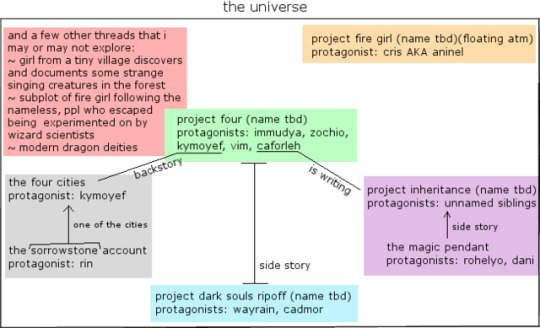
alright, this took forever because i kept getting sidetracked, but here it is. the universe ive slowly been building up. it took so long to write. its so ridiculously lengthy. i almost want to apologize to you if you read it oh my god
the main story in this universe is project four, in which four people meet Death and tag along on its quest to convince a space wyrm not to eat the world. the death figure, kymoyef, evades capture for nearly 1000 years following the event that takes place in the four cities, observing people and steadily learning about the world as it stores energy for the big confrontation. as an energy being in the form of an object, kymoyef struggles with applying the concept of personhood to itself, but the four people who insert themselves into its business help it understand who it wants to be
kymoyef’s companions love to ask questions and tell stories, one of which is an old folk tale about morality that they know as the four cities. in it, a godlike character asks kymoyef to visit four corrupt cities and raze them to the ground should their corruption be confirmed, so that the seeds of new civilization can be sown in their place. kymoyef goes to the first three places and, finding vanity, enmity, and apathy, destroys them without question. but upon reaching the fourth city and encountering suffering and hopelessness, kymoyef begins to question whether any of these people truly deserved erasure. it refuses to complete its task and instead goes into hiding to plot against the godlike character. kymoyef reveals that this tale is (generally) true
then i began fussing over details and ended up developing a plot within Sorrowstone, the city of suffering and hopelessness, where i show up close just how depressing it is through the perspective of a newcomer named rin. he joins the camp (which has no name historically since no one remembers it really existed) to escape his past and soon realizes that his stay would be permanent. the endless labor, the bleak and isolated environment, the meager food and supplies, the rampant depression of every other person in the camp - all of this combined prevented anyone from being of sound mind enough to leave. rin sees one death and promptly decides he has a duty to write down everything he observed, whether anyone would ever see it or not. that is the sorrowstone account
ok. back to the top. one of the four protagonists, caforleh, absolutely loves hearing stories and using them as inspiration for his own grand tales. i really wanted to feel justified in brainstorming for a completely separate project that had nothing to do with project four, so i clapped my hands together and declared that caforleh occasionally works on a piece of fiction that is my project inheritance, in which generation after generation of a particular lineage of siblings are all cursed to the same fate. in their lives, only and always two children will be born, quite often twins, and one will die by the actions of the other at some point. the most recent siblings are separated at a very young age after the murder of their mother, but years later one dies all too suddenly and the adults involved are sent into a panic trying to hide it from the other sibling. magic shit happens and basically you have the dead ones consciousness in the body of their sibling, not realizing theyre dead yet technically alive again, and the living ones consciousness is bound to a piece of paper in a wizard’s pocket. and everyone’s trying to run away from a cult faction that wants their leader back, but surprise, the living sibling was their leader. its a convoluted mess
in the background of this mess i found a nice little home for the magic pendant, a story that is literally just my 11th grade spanish project. a guy has a cool magic pendant. some magic dude steals it. the guy and his friend get a magic knife from a magic squirrel and kick magic dudes ass. so magical. i took that and pumped in extra details that made me happy, and now its officially enough of a story to be included
once more to the top. within the world of project four, one of the regions is plagued by a deep rift that scarred the land when scientist daiah’s experiment went horribly wrong. it swallowed several cities and poisoned the people and land around it. the survivors call that area daiah’s shame and send excommunicated criminals there to die as punishment. what they have yet to discover is that the rift is truthfully a tear upon their plane of existence, acting as an opening into an adjacent plane where pure energy resides. the land and people lost in the experiment fell into this other plane perfectly intact, but being that the two planes were never meant to interact in this way, were shortly infected with unknowable ailments. people slowly lost their sanity, their agency, anything that made them who they were. they either became husks or sought violence to distract themselves from their own pain. and the only freedom was to be killed, for time affected nothing in this plane. no one could grow old. the sky never moved. plants absorbed strange air and gnarled into bloated bastardizations
this is the reality that the protagonists of project dark souls ripoff fell into. wayrain had been traveling with a known criminal through daiah’s shame in the hopes of reaching a region beyond it, and his friend cadmor was secretly a member of law enforcement tasked with making sure the criminal died there. when this was revealed, the three fought and all of them stumbled into the rift to be spat out in the desolate climate of the lost region. i was heavily inspired by dark souls in creating all of this, so honestly just imagine the opening scene of whichever dark souls game and you’ve got the idea of it. wayrain and cadmor have to navigate this sickly area that theyve hardly even heard stories of while also dealing with dangerous people, feeling betrayed by one another, and creeping afflictions. much like rin and caforleh, wayrain takes to learning as much as he possibly can about the surroundings and compiling it all into journals. he travels ceaselessly and does his best to uncover every last mystery, from lost libraries to unmarked graves. cadmor battles his imitation morality as he eases into another role of leadership. the two will clash several times but ultimately reconcile before kymoyef shows up to assess the condition of the rift
and project fire girl is kinda out of place because it feels entirely standalone, but its actually the origin of most of this stuff, so im hoping i can find a way to squeeze it in somehow. its about a person who wakes up in a fire with no knowledge of how she got there and wanders around aimlessly dealing with the destructive repercussions of her mysterious fire powers, which she can barely control. i know. its sort of like frozen but with fire. but hey spoiler alert: she’s actually a wizard scientist (you can tell i really like my wizards and scientists) that, alongside her cousin, did awful experiments on people in the name of magic science, imbuing them with different forms of magic just to see what happens. and she gave herself fire powers because why the hell not. but the internal flame was so painful that the trauma of it elicited amnesia. she regains these memories in time by meeting the people plagued by the consequences of her actions. not knowing shes the one that did this to them, they work together with her and carry out a plan to expose the other wizard scientist. in the final confrontation, she admits that she regrets what shes done even if the academic community learned a lot from it, and allows herself to be imprisoned
yeah. like i said, project fire girl was the first narrative in this universe, which came from a dream where she was taken in by an old couple and their adopted daughter and awoke in a bed of bright petals, only to realize that she accidentally set the house on fire in her sleep, killing the whole family. the imagery was so vivid that it stuck with me. project four originated from one of my old minecraft worlds that i unfortunately deleted by mistake and then tried to rebuild. but i couldnt remember what the old build was called so i called it arenos, and that became the first region. once i decided that fire girl was gonna be set in some mountains and that those mountains bordered arenos, i was officially on my way to creating what is now this world. and then more detail happened and kymoyef happened and the concept of the four cities being parallels to the four regions in the world sounded neat but i got carried away and wanted to try to recreate the four cities in minecraft, and only did sorrowstone, so i started to think of what depressing shit went on in that place and wrote a little bit about it
the dark souls ripoff is, of course, a blatant ripoff of dark souls, but its also a combination of A) another neat dream i had that was just two people traveling on horseback through cold morning fog and being ambushed - one was killed and the other crawled to a nearby basement and hid for an eternity, until the landscape had entirely changed hundreds of years later - and B) a totally separate dream where two people were traveling on horseback through cold evening fog, trying to reach some uncertain destination after having to leave their entire lives behind because they were magic. i was like “i’ve just added two more regions to my world. what if this region has a big rift in it - oh, what if this person hid through the rift incident that sent them to an alternate plane - no wait, what if these other characters were traveling through the rift area and fell in?”
project inheritance was first called dark souls ripoff 2 because it deals with souls being portable and consumable and the two siblings have to deal with increasing insatiability for souls to keep themselves alive after having their consciousnesses ripped from their bodies. but this story was originally gonna be a text adventure game with like seven hundred endings (im exaggerating a little) testing your ability to forgive and manage your bloodlust. i know. its like a bootleg undertale. i cant have an original thought even if that thought happened two years before the popular thing happened
thats about it i guess. thats the beginners guide to my utterly incomplete creative endeavors. i have some other ideas that would be neat to pursue but they dont belong in this particular universe as of right now. i might find a way to make them fit. i might not
#i talk about life n stuff#i could talk about any of this FOREVER. or maybe an hour or two. each. i dont have that many ideas cemented yet tbh#the process of making word lasagna
3 notes
·
View notes
Text
Hausu and the Burden of Memory
Introduction:
The act of remembering is at the core of much discourse surrounding trauma in human history. How, when, and why we remember cataclysmic events, and how these memories shape the present day, are questions raised time and again. The responses to these questions differ drastically dependent upon a multitude of factors, but all hint at an important question; who gets to remember, and who gets to forget? In the case of Japan following the end of the Second World War, a cultural amnesia was at work, put in to effect by a collective disavowal of the truth which is deeply rooted within a traditional Japanese philosophy called mono no aware.
Two atomic bombs were dropped on Japan in August of 1945; ‘Little Boy’ on Hiroshima and ‘Fat Man’ on Nagasaki. What followed was cataclysmic destruction which prompted Japanese surrender and abetted an American occupation of Japan which lasted until 1952 (Balmain, 32). Hundreds of thousands of Japanese civilians died in an instant, and many more died in the following decades from radiation poisoning. The decision to drop the A-bombs on Japan was met with horror, guilt, and shame by the West, but the bombs prompted an entirely different response from the Japanese people. The Japanese reaction to the A-bomb devastation was not the anger which perhaps the West expected, but rather something altogether different, rooted in an avoidance of the truth, and an eagerness to forget and move on.
As Donald Richie describes to great effect in his 1961 essay ‘”Mono no aware”: Hiroshima in Film’, the Japanese recognise and deeply comprehend the transience of life, and ‘regard life as the period of complete insecurity that it is’ (Richie, 21). This philosophy is partly due to the fact that Japan is a country constantly feeling the threat of natural disasters and literal, tangible upheaval. When calamity struck, via earthquake, tsunami, or hurricane, all people could do was pick up and move forward without dwelling upon the ‘how’ and ‘why’ of the occurrence. Thus, it was easy to determine that the A-bomb was just another catastrophe, an ‘act of god’ wreaked upon the people of Japan that was unfathomable in nature and inconceivable that it was caused by mankind. Rather than curse the gods, the Japanese people suffered their fate as victims, thereby determining the act to be a tragedy (why us?) as opposed to a Western atrocity (how could they do this to us?) (Broderick, 4).
Richie labels this attitude as his essay’s titular phrase mono no aware, which can be translated as ‘what we feel today we forget tomorrow; this is perhaps not as it should be, but it is as it is’ (Broderick, 5). This is an attitude of ‘sympathetic sadness’ reflecting an emotional empathy and understanding, but also one of endurance (Richie, 23). Respect is paid to the traumatic event, but time will wash it away as it has done to all such events throughout Japanese history. What the forgetting imposed by mono no aware philosophy really does, though, is ignore the historical narrative leading up to the dropping of the bomb. For, to consider the A-bomb a natural disaster, or an act of god, is to deny any responsibility for the attacks. Instead of seeing the bomb as a direct response to Japan’s role in the Second World War, Japanese colonialism, or the attack on Pearl Harbour, mono no aware allows Japanese to view the bomb as an inevitable force of nature that could not be avoided (Balmain, 31). Thus, Japan becomes the victim, denying any culpability. This was not only the most prominent attitude towards the A-bomb, but also one of the hardiest and longest lasting, and was omnipresent throughout most post-war Japanese cinema of the 1950s and 60s.
Post-war cinema in Japan which deals with the events of Hiroshima and Nagasaki is called hibakusha cinema, and hibakusha became a popular subject for filmmakers in the 1950s and 60s as a response to the A-bomb and the war. Hibakusha are the survivors of the atomic bombs in Hiroshima and Nagasaki, and most of the films centred on hibakusha were sentimental melodramas, usually featuring a female protagonist. In these films, the main character was normally a ‘maiden’ who, through no fault of her own, was entangled within the war despite her innocence and naiveté, making her a particularly pathetic victim (Todeschini, 224). The A-bomb maidens are never fully fleshed out characters, but rather symbols; passive victims of the bomb. The account features a tragic love story, and the female character often dies in the end of the film as a direct result of the atomic bomb (either from the blast itself or from radiation poisoning).
The more time passed since the end of the war, however, the more the Japanese population came to see the A-bomb as an inhumane catastrophe wreaked upon them by the West. Ironically, this attitude was partly picked up by the Japanese from the Americans, themselves, during the American Occupation of Japan following the war (Balmain, 30). Thus, the old style of hibakusha cinema fell out of fashion, for Japan no longer viewed itself as having faced yet another natural disaster, but rather an unparalleled atrocity in all of human history.
However, once filmmakers did see the bomb as a horrific manmade disaster, as opposed to an act of god, how could they possibly hope to capture it on film? On hibakusha and mono no aware, Donald Richie writes,
‘The Japanese failure to come to terms with Hiroshima is one which is shared by everybody in the world today. No one has come to terms with the bomb – least of all, perhaps, the people upon whom it was originally inflicted. When the thing itself has become the very epitome of chaos unleashed, it would be expecting too much that an ordered and directed reply could be instantly presented’ (Richie, 37).
Perhaps, then, the best response to ‘chaos unleashed’ is a film that does not strive to be ordered at all, but rather a film with a complete disavowal of rationality. Chaos is the prevailing theme of Nobuhiko Obayashi’s 1977 film Hausu. Obayashi employs a myriad of artistic and experimental filmmaking techniques to create an atmosphere of discomfort and confusion, where memories of the past are allowed to infiltrate the present, and fact and fiction are blurred through the scope of time. When the truth is unfathomable, the only response is something beyond the realm of rational interpretation, and Obayashi’s Hausu is exactly that response.
In the 1970s, for the first time since the end of the Second World War and the American Occupation, Japanese cinema’s main audience were people who had not lived through the war, and had no first-hand experience of the bomb. This young audience had incorporated many aspects of the West (philosophy, film, music, etc.) into Japanese popular culture. During the Occupation, America imported to Japan Western ideals of democracy and heroic individualism in an attempt to destabilise traditional Japanese culture and patriarchal society. This led to the demise of what is called the ie system. The ie is the family structure that has at its core not American individualism, but a symbiotic collectivity in which the family is prioritised over the individual. This new young ie-less generation of the 1970s were people who, according to contemporary Japanese director Juzo Itami, ‘live(d) only according to their desires’ (Balmain, 46). This perceived hedonism is a direct result of the new glorification of American individualism found within the younger Japanese generation.
The new school of filmmakers echoed another popular feeling amongst the younger Japanese culture by heavily criticising their predecessors. The mono no aware philosophy was of no use to post-Occupation Japan, and there was almost a feeling of resentment towards older hibakushu filmmakers for being strictly apolitical. The influential director Nagisa Oshima, whose film In the Realm of the Senses caused a great deal of controversy when initially released, said of the older generation, ‘When I look at our fathers’ generation, who defeated in war did not accept responsibility and who in the post-war period continued with the lies, I feel that we are a generation of orphans’ (Balmain, 75). It was the role of the new filmmakers, then, not to shield people from the truth or to hide the memory of the bomb, but to explore these themes in new ways which reflected the attitude of their time. Because they were a generation of orphans, it was next to impossible to trace any lineage to the older hibakusha filmmakers of the 50s and 60s. If the taboo on the A-bomb as subject of artistic representation is part of a ‘culturally biased tendency to avoid socially disturbing topics’ or kusai mono ni futa o kakeru (translated to ‘putting a lid on smelly things’), then Hausu absolutely reeks, for the atomic bomb is omnipresent throughout the film (Todeschini, 223).
Hausu is a perfect example of a 1970s film which deals with hibakusha and the atomic bomb in an entirely new way. Hausu is the story of seven young Japanese schoolgirls (Angel, Fantasy, Prof, Mac, Kung Fu, Sweetie, and Melody) who, when Angel attempts to distance herself from her father’s new fiancé, spend their summer holiday in the home of Angel’s Auntie, where they are subsequently killed in a variety of absurd, surreal ways. Mac, for instance, is the first to be killed due to her gluttony, but returns as an insatiable floating head which proceeds to take bites out of another girl’s rear. Angel, however, becomes possessed by a vengeful spirit from her family’s past, and aides in the torment of her school friends. These seven girls harken back to earlier ‘A-bomb maiden’ tropes of hibakusha cinema in that they are young and innocent, totally unaware of the danger which awaits them. In fact, it could be argued that the girls are satires of the ‘A-bomb maiden’ as they are utterly one-dimensional. This is evidenced by the fact that their nicknames (we never learn their real names) are the characteristic that completely defines them; Kung Fu is a martial arts expert, Melody is a pianist, and Prof is perceptive and intelligent.
The schoolgirls, however, are not the only characters who hyperbolise the maiden trope. It is Angel’s new stepmother-to-be, Ryoko Ema, who, in all her beauty, grace, kindness, and understanding, becomes hyper-feminised to the point of absurdity. We first meet Ryoko when Angel’s father introduces her to Angel. She appears before us like a vision, gracefully walking towards Angel as the gentle breeze blows her hair.

Her effervescence is punctuated by the sentimental music which becomes the melancholic anthem of the film. Angel, however, is not so captivated, and determines to spend summer away from Ryoko, leading her to contact her Auntie.
Angel had met her Auntie only once, when she visited her at a young age. Auntie is the sister of Angel’s mother, and Angel knew the tragic tale of Auntie’s lost love, which she recites to her schoolmates prior to their arrival. Auntie’s story is a classic Japanese kitagawa utamaro (story of tragic lovers), a romance doomed by the Second World War. In Auntie’s kitagawa utamaro, Auntie is madly in love with her fiancé, but she is left alone when he is drafted to fight in the war. Auntie then bears witness to her sister’s marriage, and ends up living alone in the same house for her entire life, waiting for her lost love to return. This story is enacted in a flashback sequence, as we see young Auntie’s tale unfold. The way we (the audience) view the events in the film, however, is as if we were watching an old recording of them. We view the story not from the point of view of a character and their memory of the event, but as a filmic recording in sepia tone; the camera becomes a bystander recording the event, it’s own character as chronicler of disaster.
Hausu showcases many different variations on photography and capturing events and people on film. In the retelling of Auntie’s story, we see the film reels and the changes from colour to sepia to black and white, which may just seem to be creative ways of signifying a flashback, but in fact serve a much more important purpose.

It is through these stylistic devices that we see the materiality of the photograph and the film, which draws our attention to the important role played by the camera. Angel’s retelling of the story becomes conflated with the camera’s filming, thus allowing what is seemingly subjective (a girl retelling a sad family myth) and objective (the camera’s unbiased lens) to converge, which will, in a classic trope of horror cinema, allow for the haunting of the seven schoolgirls.
During this sequence, we hear the girls squeal in delight at various sights and objects which are not mentioned by Angel, but by the camera lens. For example, Angel does not describe what Auntie’s fiancé looks like, but the camera depicts him as a handsome young man, prompting one of the girls to proclaim ‘he’s cute!’ which is of course met by giggles from the other girls. When a cake appears in the film reel (again unmentioned by Angel), Mac declares ‘that looks yummy!’ Somehow the girls are, like the audience, simultaneously listening to Angel’s story and watching the film reel along with us, the viewer. This is, of course, impossible, but is an important indicator of the spectral role of photography within Hausu. Clearly, the camera which captures the traumatic past is unlike anything we’ve seen before.
The final, important moment of this flashback/account is when a photographer captures a portrait of Angel’s mother as a young bride, with Auntie standing at her side. Angel’s mother is played by the same actress as Angel, herself, again complicating the relationship between the past and the present, as well as foreshadowing Angel’s eventual spiritual possession and haunting. Exactly as the camera takes the photograph, it emits a shocking green flash, which becomes juxtaposed over another image; the sudden burst of light becomes the burst of the A-bomb, a monstrous mushroom cloud seeming to emit from the camera itself.

This overlay of the bomb onto the camera underscores what will become Hausu’s overriding theme; its insistence that the camera does not allow for forgetting. So long as there is an archive of the traumatic event, mono no aware is worthless. The spirits, themselves, act as reminders of the past, memory personified, and it is through photography that the spirit/memories are able to seep into the present.
Chapter One: Spectral Photography
The relationship between photography and the horrors of the A-bomb is explored time and again in Hausu. The camera does not forget; instead, it immortalises an event by imprinting it onto a photograph. This ability to immortalise is indicative of the camera’s ability to control time. Photography has this ability because it can simultaneously stop time (one moment is frozen in the lens) and enable that time to exist forever (the lasting image printed onto the photograph). This seemingly contradictory power is due to the very nature of the camera and what it does; it takes a fleeting moment, a split second, and turns this moment into an image which will go on forever without altering. In this way, the photograph is phantasmal, both magical and spiritual, giving the gift of life eternal, yet also vampiric, as this photographic afterlife is trapped within a corpse-like object (Phelan, 1). This entrapment means that the subject captured will stay forever as it was, carrying the burden of immortality in its new life-after-death as an object (Mulvey, 60).
A photograph, however, is more than just a chronical of an event, for it is imbued with a pathos and a sentimentality that turns it into a memento mori, a signifier of something lost, be it youth, beauty, life, or simply time, gone forever (Ibid., 70). In Hausu, old photographs and film reels encapsulate the tremendous losses through which Auntie has suffered. The photographs themselves, however, are very much alive, even though their exact subject matter is gone forever. The photograph comes alive again every single time we look at it, as we ourselves relive the moment of the image. In this way, photographs serve not just as remains from the past, but as reminders of transience, speeding time’s passage (Sontag, 15). It is not uncommon for us to look at a photograph from our past and think with astonishment at how time has simply flown by! Time passed since the original event disappears, as time would which has been bypassed by a time machine, transporting us from the moment of looking to the event of the photograph. The photograph is able to traverse the boundaries between 'the material and the spiritual, reality and magic, and between life and death' (Mulvey, 65).
Thus, cameras become 'clocks for seeing,' time machines which transport us back to the time of the photograph (Barthes, 15). The ability of the camera to manipulate time makes it the perfect adjunctive for ghosts, for just as we are able to go back to the time of the photographed subject, the subject is also capable of coming forward into our time (Barthes, 15). As Walter Benjamin says, 'It is not that the past casts its light on the present or that the present casts its light on the past; rather an image is that in which the Then and the Now come together into a constellation like a flash of lightning' (Cadava, 38). Photography is uniquely able to conflate time, allowing for the past to become conjoined with the present.
This ‘flash of lightning’ is at the very core of the horrors of Hausu (literally and metaphorically), always appearing on the screen to signify the past’s joining with the present, and always to the detriment of the girls. This flash, the same flash of the camera’s bulb and the atomic bomb, first occurs in the film’s very opening sequence, when Fantasy is taking a snapshot of Angel. We see the girls bathed in a sickly, artificial green light before the flash of the camera shines a radiant red across the screen.

Fantasy jokingly says that Angel looks like a witch in the resulting image, highlighting the film’s relationship between the demonic women and their photographic counterpart.
Fantasy is an important character in Hausu, as she gets her name from what her friends perceive to be her wild imagination. However, Fantasy is a photographer, the only character with a camera. By depicting Fantasy taking Angel’s photograph in the very first scene of the film, Obayashi develops the relationship between Fantasy (and fantasy) and the truth. Fantasy is the first character to bear witness to Auntie’s murders, but none of the other girls believe her when she tries to warn them. This importantly emphasizes Obayashi’s insistence that the truth is, in the case of the atomic bomb, stranger than fiction. It is impossible for the other girls to believe Fantasy, just as it is impossible for them (and for modern Japanese) to comprehend the terror and damage caused by the atomic bomb. Fantasy is the only one capable of photographing and archiving the events because she is the only one who can truly believe, and therefore witness it them. Fantasy is also in love with Angel, even after Angel becomes possessed. The relationship between Fantasy (who is, in fact, the one who sees the truth) and the spectral (through Angel AND through the camera) is important, as she comes to represent the Japanese disavowal of the traumatic bomb memory.
The flash occurs again in the eyes of Auntie’s cat, Snowy, where it will reoccur throughout the course of the film.

Snowy makes her first appearance when she enters Angel’s room through a window, knocking over a framed portrait of Angel’s mother in the process. Snowy’s flashing eyes foreshadow danger, but also function as another camera-related metaphor; that of the uncanny eye, or sight. In fact, there are many instances of uncanny eyeballs in Hausu. When the girls are first exploring Auntie’s house, they stumble upon an old skeleton model which is presumably a remnant of Auntie’s father’s medicine practice. The skeleton has one empty eye socket and one large eyeball glaring menacingly at the girls, rolling around maniacally in its skull. Later in the film, after Auntie has eaten her first victim, she glances at Fantasy and smiles, revealing an eyeball inside her mouth. The watermelon vendor who lives in the shadow of Auntie’s house tells Angel that she has her Auntie’s eyes, foreshadowing that Angel will eventually see as Auntie sees. There are also numerous instances of many characters winking, becoming cross-eyed, or drawing attention to their eyes. Prof says early on that she cannot see without her glasses, which eventually leads to her demise.
The relationship between the eye and the camera is obvious; both are capable of seeing and recording images (eyes record in the memory; cameras record via the photograph). In Hausu, witnessing the trauma of the atomic bomb and remembering that trauma become the tasks of the camera, as other characters are incapable of seeing or remembering. It is only Auntie and Snowy who truly see, and the eyes of Snowy become weapons. The dominance of Auntie and her witnessing is established as soon as the girls arrive at Auntie’s house, when Snowy flashes his green eyes and knocks Fantasy’s camera from her hands. No photographs will be taken in this house. Reality and objectivity have been overtaken by memory; Auntie’s memory, to be exact. It is Auntie’s memory, however, that has been corrupted by her status as a bakeneko, which is her driving force as a character and as the girls’ antagonist.
Chapter Two: The Bakeneko Memory
Hausu has as its horrific centre the bakeneko character in the form of Auntie. The bakeneko is a folkloric spirit firmly embedded within the canon of Japanese monsters and horror cinema. Bakeneko are women who meet horrific untimely deaths, usually at the hand of a rapist/murderer. The women then become possessed by cat spirits, evolving into hauntingly beautiful women who can morph back and forth between feline and human, using their beauty to seduce men. Once the men have been seduced, the women turn back into cats and kill the men before eating them. Their sole purpose as cat spirits is to seek revenge, not just on their tormentors but on all men. There were many legends circulating of famous bakeneko prostitutes, and they became a popular trope in traditional and popular culture.

Bakeneko mono are tales of monster-cats that were so popular and pervasive that they became their own subgenre of Japanese horror films (Balmain, 73). The classic example of a bakeneko is best epitomized by Kinedo Shinto in his 1968 film Kuroneko, or ‘The Black Cat,’ in which a mother and daughter-in-law turn into bakeneko following their horrific rapes and murders. The two cat-women then seek revenge on men by seducing the lusty, animalistic samurai, vampirically biting their neck and devouring their blood. The film occurs during the Sengoku Period – a time of extreme violence and social upheaval (Balmain, 74).
In fact, bakeneko and other shapeshifting monsters tend to become most popular during unstable periods in not just Japanese society, but in Western and universal cultures as well. The constant transition of the bakeneko, its plasticity, its immateriality, and its lurid sexuality all echo Japanese popular culture following the American Occupation. Like the Sengoku Period, post-Occupation Japan was facing irreversible changes that would alter everything from cinema and music to democracy and politics. Just like their Japanese counterparts, Western cat-women also appear as troubling transient creatures representing transformative times, and are simultaneously creatures of sexual desire and fear. In films like Jacques Tourneur’s 1942 Cat People, the main character represents war-time fears of the other, seductive yet dangerous. They subvert stereotypical ideals of femininity which link women to passivity and respectability, instead becoming animalistic primordial creatures (Balmain, 74).
Felines have the unique ability to be both masculine and feminine, wild and civilised, visible and mysterious (Willmott, 844). Cats can feature as bad omens or heroic creatures, capable of hurting or saving those who come into contact with them. H.P. Lovecraft, an important figure in Western Modernist horror and science fiction, believed cats to be ‘runes of beauty, invincibility, wonder, pride, freedom, coldness, self-sufficiency, and dainty individuality’; language which is simultaneously highly Modernist and primeval (Willmott, 842). In this way, cat-women, in both Japan and the West, are inherently uncanny. Shape-shifting, morphing, never truly one thing or another, cat-women recall the uncanny in a multitude of ways.
Japanese bakeneko, however, are more than just objects of sexual desire or projections of male anxiety, as, unlike their Western counterparts, they become cat-women specifically to seek revenge, driven by the memory of their demise. Even after becoming monstrous and unleashing their fury not just on their tormentors, but on all mankind, these cat-women remain tragic figures. This is partly due to the nature of Shinto tradition, which ‘does not believe that there is an absolute dichotomy of good and evil. Rather, all phenomena, both animate and inanimate, are thought to possess both “rough” and “gentle,” or negative and positive, characteristics and it is possible for a given entity to manifest either of these characteristics depending on the circumstances’ (Balmain, 38).
In this way, bakeneko are not wholly unsympathetic creatures, but they have become so consumed by their own memories that it becomes the only thing keeping them alive. The driving force of the bakeneko is her own traumatic experience and the memory which haunts her, thus necessitating her ghostly presence in the human realm to carry out her acts of revenge. It is this insistence on remembering trauma that makes the bakeneko the perfect villain for Hausu. Auntie has become corrupted by her memory of loss, be it her lost love or the overwhelming loss caused by the atomic bomb. Unlike other classic bakeneko figures, however, Auntie is seeking revenge not on men but on the girls who enter her house. If the girls are representative of the new Japanese generation who are disaffected from and disconnected to the events of the Second World War (when faced with the image of the atomic bomb, one of the girls proclaims that it ‘looks like cotton candy’), then Auntie’s vengeance implicates this generation as villains by means of their forgetfulness. Snowy, Auntie’s bakeneko spirit, is the bomb with flashing green eyes and long white fur like a cloud (or mushroom cloud); the driving memory is the catastrophic damage of the atomic bomb.
It is important, then, that Auntie bestows upon Angel (her niece) the gift of sight by way of possession and haunting. Angel becomes fused with the bakeneko spirit of Auntie, and is allowed to witness the trauma and hold the burden of memory. The pivotal turning point in the film is almost exactly halfway through, when Angel is in Auntie’s bedroom, looking into the mirror as she applies Auntie’s red lipstick to her lips. As she gazes at her reflection, her now blood-red lips part to reveal the fangs of the bakeneko. Immediately after, the image in the mirror suddenly becomes that of a young Auntie. Auntie’s visage first smiles back at Angel, but then her eyes grow wide in fear. The eyes of Snowy the cat quickly flash on the mirror before Auntie’s face returns. Then the mirror begins to crack, causing Auntie’s eyes to bleed. The blood drips from Auntie’s eye sockets, then oozes out of the cracks in the mirror. Angel, still staring transfixed at the mirror, begins to crack as well; her face shatters into pieces, her skin falling off and leaving behind a pair of eyeballs engulfed in flame.

It is in this scene that Angel becomes Auntie. Angel sees in the mirror Auntie’s trauma, and in this seeing she experiences it as well. Mirrors are an example of the uncanny, and are commonly used in horror film. Throughout Hausu, the camera often records its subject matter through reflections (in mirrors and water), through windows, and even through a fish bowl. All of these surfaces distort what the audience is seeing, and also make it appear as if the house, itself, is watching the girls. Auntie’s room also becomes a bizarre, uncanny reflection of Angel’s room, which we see at the beginning of the film. Whereas Angel had a collection of photographs of her family, Auntie has an arrangement of portraits of Snowy hanging on her wall. Auntie has completely replaced the photograph (and the memory), the seemingly objective image of the past, with the bakeneko, her own unending thirst for vengeance.
The architectural uncanny, or Freud's 'unheimlich' (translated literally as 'unhomeliness'), is best exemplified by a building's ability to 'turn on its owners' in a sinister betrayal (Vidler, 7). The uncanny house is not what it seems, morphing from the safe domesticity of the home into a manipulative confusion of the senses. It is bestowed with anthropomorphic powers, allowed to become something deeper and darker than what meets the eye. This transformation is possible because in Japan, the interior of the home is viewed as a sacred space, completely distinct from the outside world (Balmain, 34). Because of this 'implicat[ion] with humanity,' the house's turn towards the uncanny is unsettling and becomes a place of chaos, where the usual order of the home is turned on its head (Curtis, 10).
Auntie’s house is a place where time has stopped. The girls travel from the big city to the countryside, where not even the refrigerator works. There are obvious allusions to time throughout the film, namely through the large grandfather clock whose ominous tolling bell startles the girls. Sweetie’s decapitated head ends up lodged in the turning gears of the clock, as blood gushes out. Even the metronome keeping time for Melody playing the piano ticks away.
Conclusion:
It is the persistence of memory and the act of remembering that lie at the core of haunting, ghostly, spectral horror cinema. Whilst hibakusha cinema’s emotional response became that of mono no aware, horror films acted with a vengeance, featuring the tortured souls of pre-modern Japan wreaking havoc on the living in their quest for revenge. Horror and science fiction films ‘proliferate at times of economic and political anxiety’ on a global scale, and Japan, facing one of its greatest moments of upheaval, turned from hibakusha to horror, in the form of monster and ghost films which saturated the market starting in the 1950s (Balmain, 31).
Memory plays a pivotal role in ghost horror cinema, as spectres only exist within collective memory. The physical manifestation of memory in Hausu can be traced to the presence of photography, which is pervasive throughout the film. Photography acts as a time portal, allowing the past to transcend time and seep into the present (and vice versa). Hausu, however, features multiple layers of remembrance as key to its narrative. Auntie remembers the event as one who lived through it and witnessed it with her own eyes. The camera remembers the event as an archivist, creating a piece of physical, material evidence in the form of photography. It is the photography combined with the act of looking which will eventually allow Angel access to the time of the event, as she not only recalls the spirit of Auntie, but becomes that spirit, herself.
Towards the end of the film, Prof finds Auntie’s diary in which Auntie has continued to write during her time holed up in her house. In one of the final scenes, Prof reads one of Auntie’s diary entries aloud. Auntie has written of her fiancé and her disbelief that he is actually dead. ‘He didn’t die in the war,’ she writes. ‘He will return.’ Auntie’s memory has become corrupted and the photographs, the visual testaments to the atomic bomb and the war, are unavailable to her. All she has left is her vengeful memory.
Auntie and her memory are in direct contrast with the camera, as the camera’s record of the event is unchanging. The camera witnessed the bomb and Auntie’s tragic story of love and loss surrounding the Second World War. After witnessing these occurrences, the camera leaves a physical trace of the event. It is this photograph which becomes material evidence to the event. Auntie, however, does not have a photograph or a seemingly objective portrayal of what happened. Instead she has Snowy, the manifestation of her own twisted memory, the vengeful memory that has distorted Auntie’s vision beyond repair.
Auntie wears her sunglasses outside because she is, as she says, ‘afraid of the blinding light.’ Is this the unearthly atomic light of the bomb, or the bright flash of the camera? For Auntie, it is both, as she has turned from the truth of what actually happened. The war and the camera, as testaments to the reality of history, are in direct opposition to the bakeneko, one who has been warped and demonised by her own memory and her lust for revenge. The bakeneko woman becomes a pathetic symbol for a wider cultural tendency to twist the truth. Unlike her forgetful predecessors, however, the bakeneko does not forget to move on, but instead fixates on the event until she forgets what is truth and what is fiction. She becomes a deadly force in her own right, killing all those who cross her path, just as the atomic bomb killed those unfortunate enough to become its target.
Bibliography:
Barthes, Roland. Camera Lucida (London: Vintage, 2000).
Balmain, Colette. Introduction to Japanese Horror Film. Edinburgh University Press (Edinburgh: 2008).
Benjamin, Walter. The Work of Art in the Age of its Technological Reproducibility and Other Writings on Media (Cambridge: Harvard University Press, 2008).
Broderick, Mick. “Introduction” in Hibakusha Cinema: Hiroshima, Nagasaki and the Nuclear Image in Japanese Film. Ed. Mick Broderick. Routledge (Oxon: 1996) pp. 1 – 19.
Cadava, Eduardo. ‘”Lapsus Imaginis”: The Image in Ruins’, October (Spring 2001), pp. 35 – 60.
Curtis, Barry. Dark Places: The Haunted House in Film (London: Reaktion Books, 2008).
Hollinger, Karen. ‘The Monster as Woman: Two Generations of Cat People’ in The Dread of Difference ed. Grant, Keith Barry. University of Texas Press (Austin: 1996). Pps. 296-308.
Kuhn, Annette. Family Secrets: Acts of Memory and Imagination (London: Verso, 2002).
Lury, Celia. Prosthetic Culture: Photography, Memory and Identity (New York: Routledge, 1998), 86.
McDonald, Keiko I. Eros, Politics, and Folk Religion: Kaneto Shindo’s Onibaba (1963) in Reading a Japanese Film: Cinema in Context University of Hawaii Press (2006: Honolulu) pp. 108 – 121.
Model, Katie. “Gender Hyperbole and the Uncanny in the Horror Film: The Shining” in Gender Meets Genre in Postwar Cinemas. Ed. Christine Gledhill. University of Illinois Press (Chicago: 2012) pp. 146 – 157.
Mulvey, Laura. Death 24x a Second: Stillness and the Moving Image (London: Reaktion Books, 2006), 60.
Nead, Lynda. The Haunted Gallery: Painting, Photography, Film c. 1900 (New Haven: Yale University Press, 2007).
Phelan, Peggy. Unmarked: The Politics of Performance (London: Routledge, 1993).
Richie, Donald. ‘”Mono no aware”: Hiroshima in Film’ in Hibakusha Cinema: Hiroshima, Nagasaki and the Nuclear Image in Japanese Film. Ed. Mick Broderick. Routledge (Oxon: 1996) pp. 20 – 37.
Sontag, Susan (ed.). A Barthes Reader (Canada: HarperCollins, 1995).
Sontag, Susan. On Photography (New York: Farrar, Straus and Giroux, 1977).
Vidler, Anthony. The Architectural Uncanny: Essays in the Modern Unhomely (Cambridge: The MIT Press, 1992).
Willmott, G. "Cat People." Modernism/modernity, vol. 17 no. 4, 2010, pp. 839-856.
7 notes
·
View notes